All about China
87 element(s) found

Article(s)
For a world free from the shadows of the gallows
By World Coalition Against the Death Penalty, on 14 April 2025
On 8 April 2025, Amnesty International published its annual report on the state of the death penalty worldwide. Amnesty International’s monitoring shows that with continued advocacy, it is just a matter of time before the death penalty will be fully abolished globally.
2025
China
Clemency
Cruel, Inhuman and Degrading Treatment and Punishment
Democratic People's Republic of Korea
Gender
Warning: Undefined variable $tmp in /home/worldcoa/coalition2020/wp-content/themes/WCADP/template-parts/contents.php on line 27
Innocence
Intellectual Disability
Iran (Islamic Republic of)
Iraq
Japan
Malaysia
Mental Illness
Moratorium
Saudi Arabia
Terrorism
Trend Towards Abolition
United States
Viet Nam
Women
Zambia
Zimbabwe
Document(s)
The Death Penalty for Drug Offences: Global Overview 2024
on 12 March 2025
2025
NGO report
Warning: Undefined variable $liste_type_doc in /home/worldcoa/coalition2020/wp-content/themes/WCADP/template-parts/contents-document.php on line 21
Warning: Undefined variable $liste_pays in /home/worldcoa/coalition2020/wp-content/themes/WCADP/template-parts/contents-document.php on line 40
China
Warning: Undefined variable $liste_themes in /home/worldcoa/coalition2020/wp-content/themes/WCADP/template-parts/contents-document.php on line 35
Cruel, Inhuman and Degrading Treatment and Punishment
Democratic People's Republic of Korea
Drug Offenses
Fair Trial
Gender
Indonesia
Iran (Islamic Republic of)
Iraq
Legal Representation
Malaysia
Moratorium
Pakistan
Saudi Arabia
Singapore
Trend Towards Abolition
Viet Nam
Women
Warning: Undefined variable $tag_langue in /home/worldcoa/coalition2020/wp-content/themes/WCADP/template-parts/contents-document.php on line 85
More details See the document
The Death Penalty for Drug Offences: Global Overview 2024 report provides updates on legislative, policy and practical developments related to the use of capital punishment for drug offences, a practice which is a clear violation of international human rights and drug control standards. This report presents an analysis of key developments, with a focus on analysing and disseminating available figures and trends on drug-related executions and death sentences.
- Document type NGO report
- Countries list China / Democratic People's Republic of Korea / Indonesia / Iran (Islamic Republic of) / Iraq / Malaysia / Pakistan / Saudi Arabia / Singapore / Viet Nam
- Themes list Cruel, Inhuman and Degrading Treatment and Punishment / Drug Offenses / Fair Trial / Gender / Legal Representation / Moratorium / Trend Towards Abolition / Women
Warning: Undefined variable $lien_langue in /home/worldcoa/coalition2020/wp-content/themes/WCADP/template-parts/contents-document.php on line 127

Article(s)
China: Judicial guidelines to curtail activism for Taiwan a further blow for human rights protections
By Amnesty International, Anti-Death Penalty Asia Network, Capital Punishment Justice Project, the Rights Practice and the World Coalition Against the Death Penalty, on 1 August 2024
Taken from the declaration posted on Amnesty International’s web page found here. “Amnesty International and four other organizations are alarmed by the recent publication by the Chinese authorities of new judicial guidelines providing directives to prosecute and harshly punish, including by the death penalty, those advocating and acting for Taiwan’s independence. The guidance effectively encourages […]
2024
China
Warning: Undefined variable $tmp in /home/worldcoa/coalition2020/wp-content/themes/WCADP/template-parts/contents.php on line 27

Article(s)
What China’s report to the United Nations tells us about transparency and the death penalty
By World Coalition Against the Death Penalty, on 28 June 2024
In January 2024, China underwent its fourth Universal Periodic Review (UPR) by the UN Human Rights Council. While in all previous reviews, the death penalty was mentioned in the Chinese state report, nothing was reported this year.
2024
China
Warning: Undefined variable $tmp in /home/worldcoa/coalition2020/wp-content/themes/WCADP/template-parts/contents.php on line 27
Document(s)
The Death Penalty for Drug Offences: Global Overview 2022
on 24 March 2023
2023
NGO report
Warning: Undefined variable $liste_type_doc in /home/worldcoa/coalition2020/wp-content/themes/WCADP/template-parts/contents-document.php on line 21
Warning: Undefined variable $liste_pays in /home/worldcoa/coalition2020/wp-content/themes/WCADP/template-parts/contents-document.php on line 40
China
Democratic People's Republic of Korea
Warning: Undefined variable $liste_themes in /home/worldcoa/coalition2020/wp-content/themes/WCADP/template-parts/contents-document.php on line 35
Drug Offenses
Indonesia
Iran (Islamic Republic of)
Malaysia
Saudi Arabia
Singapore
Viet Nam
Warning: Undefined variable $tag_langue in /home/worldcoa/coalition2020/wp-content/themes/WCADP/template-parts/contents-document.php on line 85
More details See the document
Harm Reduction International has monitored the use of the death penalty for drug offences worldwide since our first ground-breaking publication on this issue in 2007. This report, our twelfth on the subject, continues our work of providing regular updates on legislative, policy and practical developments related to the use of capital punishment for drug offences, a practice which is a clear violation of international standards. As of December 2022, Harm Reduction International (HRI) recorded at least 285 executions for drug offences globally during the year, a 118% increase from 2021, and an 850% increase from 2020. Executions for drug offences are confirmed or assumed to have taken place in six countries: Iran, Saudi Arabia, Singapore, plus in China, North Korea and Vietnam – on which exact figures cannot be provided because of extreme opacity. Therefore, this figure is likely to reflect only a percentage of all drug-related executions worldwide. Confirmed death sentences for drug offences were also on the rise; with at least 303 people sentenced to death in 18 countries. This marks a 28% increase from 2021.
- Document type NGO report
- Countries list China / Democratic People's Republic of Korea / Indonesia / Iran (Islamic Republic of) / Malaysia / Saudi Arabia / Singapore / Viet Nam
- Themes list Drug Offenses
Warning: Undefined variable $lien_langue in /home/worldcoa/coalition2020/wp-content/themes/WCADP/template-parts/contents-document.php on line 127
Document(s)
(Not) Talking about Capital Punishment in the Xi Jinping Era
By Tobias Smith, Matthew Robertson and Susan Trevaskes, on 1 September 2022
2022
Academic report
Warning: Undefined variable $liste_type_doc in /home/worldcoa/coalition2020/wp-content/themes/WCADP/template-parts/contents-document.php on line 21
Warning: Undefined variable $liste_pays in /home/worldcoa/coalition2020/wp-content/themes/WCADP/template-parts/contents-document.php on line 40
China
Warning: Undefined variable $tag_langue in /home/worldcoa/coalition2020/wp-content/themes/WCADP/template-parts/contents-document.php on line 85
More details See the document
An investigation into the death penalty in the People’s Republic of China in the Xi Jinping era (2012–) shows that unlike previous administrations, Xi does not appear to have articulated a signature death penalty policy. Where policy in China is unclear, assessing both the quality and frequency of discourse on the topic can provide evidence regarding an administration’s priorities.
This article was first published in Crime Justice Journal: https://www.crimejusticejournal.com/issue/view/119
- Document type Academic report
- Countries list China
Warning: Undefined variable $liste_themes in /home/worldcoa/coalition2020/wp-content/themes/WCADP/template-parts/contents-document.php on line 114
Warning: Undefined variable $lien_langue in /home/worldcoa/coalition2020/wp-content/themes/WCADP/template-parts/contents-document.php on line 127
Document(s)
The Clemency Process in East and Southeast Asia
on 22 March 2022
2022
NGO report
Warning: Undefined variable $liste_type_doc in /home/worldcoa/coalition2020/wp-content/themes/WCADP/template-parts/contents-document.php on line 21
Warning: Undefined variable $liste_pays in /home/worldcoa/coalition2020/wp-content/themes/WCADP/template-parts/contents-document.php on line 40
China
Warning: Undefined variable $liste_themes in /home/worldcoa/coalition2020/wp-content/themes/WCADP/template-parts/contents-document.php on line 35
Clemency
Indonesia
Japan
Malaysia
Singapore
Taiwan
Thailand
Viet Nam
Warning: Undefined variable $tag_langue in /home/worldcoa/coalition2020/wp-content/themes/WCADP/template-parts/contents-document.php on line 85
More details
Warning: Trying to access array offset on value of type bool in /home/worldcoa/coalition2020/wp-content/themes/WCADP/template-parts/contents-document.php on line 97
Warning: Trying to access array offset on value of type bool in /home/worldcoa/coalition2020/wp-content/themes/WCADP/template-parts/contents-document.php on line 99
Warning: Trying to access array offset on value of type bool in /home/worldcoa/coalition2020/wp-content/themes/WCADP/template-parts/contents-document.php on line 99
Download [ - 0 Ko ]
In this report, we summarise the current international position on clemency and the death penalty and compare it to snapshots of the clemency processes in the following Southeast and East Asian countries: Thailand, Malaysia, Singapore, Indonesia, Vietnam, Japan, Taiwan, and China. All references to clemency in this paper are in the context of reprieve from the death penalty.
- Document type NGO report
- Countries list China / Indonesia / Japan / Malaysia / Singapore / Taiwan / Thailand / Viet Nam
- Themes list Clemency
Warning: Undefined variable $lien_langue in /home/worldcoa/coalition2020/wp-content/themes/WCADP/template-parts/contents-document.php on line 127

Article(s)
The Status Quo of China’s Death Penalty and the Civil Society Abolitionist Movement
By China Against the Death Penalty, on 15 February 2022
Translation of an article on the death penalty in China for the Beijing Olympics 2022, initially published by Taiwan Alliance to End the Death Penalty in October 2021 for World Day.
2022
China
Warning: Undefined variable $tmp in /home/worldcoa/coalition2020/wp-content/themes/WCADP/template-parts/contents.php on line 27
Legal Representation
Document(s)
Chinese Netizens’ Opinions on Death Sentences
By Bin Liang and Jianhong Liu, The University of Michigan Press, on 4 November 2021
2021
Academic report
Warning: Undefined variable $liste_type_doc in /home/worldcoa/coalition2020/wp-content/themes/WCADP/template-parts/contents-document.php on line 21
Warning: Undefined variable $liste_pays in /home/worldcoa/coalition2020/wp-content/themes/WCADP/template-parts/contents-document.php on line 40
China
Warning: Undefined variable $liste_themes in /home/worldcoa/coalition2020/wp-content/themes/WCADP/template-parts/contents-document.php on line 35
Public Opinion
Warning: Undefined variable $tag_langue in /home/worldcoa/coalition2020/wp-content/themes/WCADP/template-parts/contents-document.php on line 85
More details See the document
The People’s Republic of China no doubt leads the world in both numbers of death sentences and executions. Despite being the largest user of the death penalty, China has never conducted a national poll on citizens’ opinions toward capital punishment, while claiming “overwhelming public support” as a major justification for its retention and use. Based on a content analysis of 38,512 comments collected from 63 cases in 2015, this study examines the diversity and rationales of netizens’ opinions of and interactions with China’s criminal justice system. In addition, the book discusses China’s social, systemic, and structural problems and critically examines the rationality of netizens’ opinions based on Habermas’s communicative rationality framework. Readers will be able to contextualize Chinese netizens’ discussions and draw conclusions about commonalities and uniqueness of China’s death penalty practice.
- Document type Academic report
- Countries list China
- Themes list Public Opinion
Warning: Undefined variable $lien_langue in /home/worldcoa/coalition2020/wp-content/themes/WCADP/template-parts/contents-document.php on line 127
Document(s)
Note verbale dated 13 September 2019 from the Permanent Representative of Egypt to the United Nations addressed to the Secretary-General
By United Nations, on 15 October 2020
2020
United Nations report
Warning: Undefined variable $liste_type_doc in /home/worldcoa/coalition2020/wp-content/themes/WCADP/template-parts/contents-document.php on line 21
Warning: Undefined variable $liste_pays in /home/worldcoa/coalition2020/wp-content/themes/WCADP/template-parts/contents-document.php on line 40
Bahrain
Bangladesh
Botswana
Brunei Darussalam
Chad
China
Democratic People's Republic of Korea
Egypt
Ethiopia
Grenada
Iran (Islamic Republic of)
Iraq
Jamaica
Kuwait
Libya
Warning: Undefined variable $liste_themes in /home/worldcoa/coalition2020/wp-content/themes/WCADP/template-parts/contents-document.php on line 35
Moratorium
Nigeria
Oman
Pakistan
Papua New Guinea
Qatar
Saint Kitts and Nevis
Saint Lucia
Saint Vincent and the Grenadines
Saudi Arabia
Singapore
Sudan
Syrian Arab Republic
United Arab Emirates
Yemen
Zimbabwe
Warning: Undefined variable $tag_langue in /home/worldcoa/coalition2020/wp-content/themes/WCADP/template-parts/contents-document.php on line 54
Warning: Undefined variable $lien_langue in /home/worldcoa/coalition2020/wp-content/themes/WCADP/template-parts/contents-document.php on line 55
aresfrruzh-hant
More details See the document
The Permanent Missions to the United Nations inNew York listed below have the honour to refer to General Assembly resolution 73/175, entitled “Moratorium on the use of the death penalty”, which was adopted by the Assembly on 17 December 2018 by a recorded vote. The Permanent Missions wish to place on record that they are in persistent objection to any attempt to impose a moratorium on the use of the death penalty or its abolition in contravention of existing stipulations under international law, for the following reasons:
- Document type United Nations report
- Countries list Bahrain / Bangladesh / Botswana / Brunei Darussalam / Chad / China / Democratic People's Republic of Korea / Egypt / Ethiopia / Grenada / Iran (Islamic Republic of) / Iraq / Jamaica / Kuwait / Libya / Nigeria / Oman / Pakistan / Papua New Guinea / Qatar / Saint Kitts and Nevis / Saint Lucia / Saint Vincent and the Grenadines / Saudi Arabia / Singapore / Sudan / Syrian Arab Republic / United Arab Emirates / Yemen / Zimbabwe
- Themes list Moratorium
- Available languages مذكرة شفوية مؤرخة 13 أيلول/سبتمبر 2019 موجهة إلى الأمين العام من الممثل الدائم لمصر لدى الأمم المتحدةNota verbal de fecha 13 de septiembre de 2019 dirigida al Secretario Generalpor el Representante Permanente de Egipto ante las Naciones UnidasNote verbale datée du 13 septembre 2019, adressée au Secrétaire général par le Représentant permanent de l’Égypte auprès de l’Organisation des Nations UniesВербальная нота Постоянного представителя Египта при Организации Объединенных Наций от 13 сентября 2019 года на имя Генерального секретаря2019年9月13日埃及常驻联合国代表给秘书长的普通照会
Document(s)
China’s deadly secret
By Amnesty International, on 8 September 2020
2020
NGO report
Warning: Undefined variable $liste_type_doc in /home/worldcoa/coalition2020/wp-content/themes/WCADP/template-parts/contents-document.php on line 21
Warning: Undefined variable $liste_pays in /home/worldcoa/coalition2020/wp-content/themes/WCADP/template-parts/contents-document.php on line 40
China
Warning: Undefined variable $tag_langue in /home/worldcoa/coalition2020/wp-content/themes/WCADP/template-parts/contents-document.php on line 79
Warning: Undefined variable $lien_langue in /home/worldcoa/coalition2020/wp-content/themes/WCADP/template-parts/contents-document.php on line 80
zh-hant
More details See the document
The Chinese government continues to conceal the extent to which capital punishment is being used in China, despite more than four decades of requests from UN bodies and the international community and despite the Chinese authorities’ own pledges to bring about increased openness in the country’s criminal justice system. This report focuses on the extent to which the authorities maintain near absolute secrecy over the death penalty system, while using partial and generally unverifiable disclosures to claim progress and reject demands for greater transparency.
- Document type NGO report
- Countries list China
Warning: Undefined variable $liste_themes in /home/worldcoa/coalition2020/wp-content/themes/WCADP/template-parts/contents-document.php on line 114
Warning: Undefined variable $liste_themes in /home/worldcoa/coalition2020/wp-content/themes/WCADP/template-parts/contents-document.php on line 121
- Themes list Drug Offences, Death Penalty, Statistics, Country/Regional profiles,
- Available languages 中国的致命秘密
Document(s)
Note verbale dated 28 July 2015 from the Permanent Mission of Egypt to the United Nations addressed to the Secretary-General
By United Nations, on 8 September 2020
United Nations report
Warning: Undefined variable $liste_type_doc in /home/worldcoa/coalition2020/wp-content/themes/WCADP/template-parts/contents-document.php on line 21
Warning: Undefined variable $liste_pays in /home/worldcoa/coalition2020/wp-content/themes/WCADP/template-parts/contents-document.php on line 40
Antigua and Barbuda
Bangladesh
Botswana
Brunei Darussalam
China
Democratic People's Republic of Korea
Egypt
Ethiopia
Guyana
Iran (Islamic Republic of)
Iraq
Jamaica
Kuwait
Libya
Malaysia
Warning: Undefined variable $liste_themes in /home/worldcoa/coalition2020/wp-content/themes/WCADP/template-parts/contents-document.php on line 35
Moratorium
Nigeria
Oman
Pakistan
Qatar
Saudi Arabia
Singapore
Sudan
Syrian Arab Republic
Trinidad and Tobago
United Arab Emirates
Yemen
Zimbabwe
Warning: Undefined variable $tag_langue in /home/worldcoa/coalition2020/wp-content/themes/WCADP/template-parts/contents-document.php on line 54
Warning: Undefined variable $lien_langue in /home/worldcoa/coalition2020/wp-content/themes/WCADP/template-parts/contents-document.php on line 55
aresfrruzh-hant
More details See the document
The permanent missions to the United Nations in New York listed below have the honour to refer to General Assembly resolution 69/186, entitled “Moratorium on the use of the death penalty”, which was adopted by the Third Committee on 21 November 2014 and subsequently by the General Assembly on 18 December 2014 by a recorded vote. The permanent missions wish to place on record that they are in persistent objection to any attempt to impose a moratorium on the use of the death penalty or its abolition in contravention of existing stipulations under international law, for the following reasons:
- Document type United Nations report
- Countries list Antigua and Barbuda / Bangladesh / Botswana / Brunei Darussalam / China / Democratic People's Republic of Korea / Egypt / Ethiopia / Guyana / Iran (Islamic Republic of) / Iraq / Jamaica / Kuwait / Libya / Malaysia / Nigeria / Oman / Pakistan / Qatar / Saudi Arabia / Singapore / Sudan / Syrian Arab Republic / Trinidad and Tobago / United Arab Emirates / Yemen / Zimbabwe
- Themes list Moratorium
- Available languages مذكرة شفوية مؤرخة 28 تموز/يوليه ٢٠١٥ موجهة إلى الأمين العام من البعثة الدائمة لمصر لدى الأمم المتحدةNota verbal de fecha 28 de julio de 2015 dirigida al Secretario General por la Misión Permanente de Egipto ante las Naciones UnidasNote verbale datée du 28 juillet 2015, adressée au Secrétaire général par la Mission permanente de l’Égypte auprès de l’Organisation des Nations UniesВербальная нота Постоянного представительства Египта при Организации Объединенных Наций от 28 июля 2015 года на имя Генерального секретаря2015年7月28日埃及常驻联合国代表团给秘书长的普通照会
Document(s)
Greek : НОВЫЕ ТЕНДЕНЦИИ РАЗВИТИЯ УГОЛОВНОГО ЗАКОНОДАТЕЛЬСТВА В КИТАЕ
By Пан Дунмэй / Институт изучения России Хэйлунцзянского университета, on 8 September 2020
Article
Warning: Undefined variable $liste_type_doc in /home/worldcoa/coalition2020/wp-content/themes/WCADP/template-parts/contents-document.php on line 21
Warning: Undefined variable $liste_pays in /home/worldcoa/coalition2020/wp-content/themes/WCADP/template-parts/contents-document.php on line 40
China
Warning: Undefined variable $tag_langue in /home/worldcoa/coalition2020/wp-content/themes/WCADP/template-parts/contents-document.php on line 85
More details See the document
Бурное социально-экономическое развитие КНР в последние годы обусловило изменения, произошедшие в современном китайском обществе, что, в свою очередь, повлекло необходи- мость изменения уголовного законодательства Китая.
- Document type Article
- Countries list China
Warning: Undefined variable $liste_themes in /home/worldcoa/coalition2020/wp-content/themes/WCADP/template-parts/contents-document.php on line 114
Warning: Undefined variable $liste_themes in /home/worldcoa/coalition2020/wp-content/themes/WCADP/template-parts/contents-document.php on line 121
- Themes list International law,
Warning: Undefined variable $lien_langue in /home/worldcoa/coalition2020/wp-content/themes/WCADP/template-parts/contents-document.php on line 127
Document(s)
Note verbale dated 16 April 2013 from the Permanent Mission of Egypt to the United Nations addressed to the Secretary-General
By United Nations, on 8 September 2020
United Nations report
Warning: Undefined variable $liste_type_doc in /home/worldcoa/coalition2020/wp-content/themes/WCADP/template-parts/contents-document.php on line 21
Warning: Undefined variable $liste_pays in /home/worldcoa/coalition2020/wp-content/themes/WCADP/template-parts/contents-document.php on line 40
Afghanistan
Antigua and Barbuda
Bahrain
Bangladesh
Barbados
Botswana
Brunei Darussalam
Chad
China
Democratic People's Republic of Korea
Egypt
Equatorial Guinea
Eritrea
Eswatini
Ethiopia
Grenada
Guyana
India
Iran (Islamic Republic of)
Iraq
Jamaica
Kuwait
Lao People's Democratic Republic
Libya
Malaysia
Mauritania
Warning: Undefined variable $liste_themes in /home/worldcoa/coalition2020/wp-content/themes/WCADP/template-parts/contents-document.php on line 35
Moratorium
Myanmar
Nigeria
Oman
Pakistan
Papua New Guinea
Qatar
Saint Kitts and Nevis
Saint Lucia
Saint Vincent and the Grenadines
Saudi Arabia
Singapore
Solomon Islands
Somalia
Sudan
Syrian Arab Republic
Tonga
Trinidad and Tobago
Uganda
United Arab Emirates
Yemen
Zimbabwe
Warning: Undefined variable $tag_langue in /home/worldcoa/coalition2020/wp-content/themes/WCADP/template-parts/contents-document.php on line 54
Warning: Undefined variable $lien_langue in /home/worldcoa/coalition2020/wp-content/themes/WCADP/template-parts/contents-document.php on line 55
aresfrruzh-hant
More details See the document
The permanent missions to the United Nations in New York listed below have the honour to refer to General Assembly resolution 67/176, entitled “Moratorium on the use of the death penalty”, which was adopted by the Third Committee on 19 November 2012, and subsequently by the General Assembly on 20 December 2012 by a recorded vote. The permanent missions wish to place on record that they are in persistent objection to any attempt to impose a moratorium on the use of the death penalty or its abolition in contravention of existing stipulations under international law, for the following reasons:
- Document type United Nations report
- Countries list Afghanistan / Antigua and Barbuda / Bahrain / Bangladesh / Barbados / Botswana / Brunei Darussalam / Chad / China / Democratic People's Republic of Korea / Egypt / Equatorial Guinea / Eritrea / Eswatini / Ethiopia / Grenada / Guyana / India / Iran (Islamic Republic of) / Iraq / Jamaica / Kuwait / Lao People's Democratic Republic / Libya / Malaysia / Mauritania / Myanmar / Nigeria / Oman / Pakistan / Papua New Guinea / Qatar / Saint Kitts and Nevis / Saint Lucia / Saint Vincent and the Grenadines / Saudi Arabia / Singapore / Solomon Islands / Somalia / Sudan / Syrian Arab Republic / Tonga / Trinidad and Tobago / Uganda / United Arab Emirates / Yemen / Zimbabwe
- Themes list Moratorium
- Available languages مذكرة شفوية مؤرخة 16 نيسان/أبريل 2013 موجهة إلى الأمين العام من البعثة الدائمة لمصر لدى الأمم المتحدةNota verbal de fecha 16 de abril de 2013 dirigida al Secretario General por la Misión Permanente de Egipto ante las Naciones UnidasNote verbale datée du 16 avril 2013, adressée au Secrétaire général par la Mission permanente de l’Égypte auprès de l’Organisation des Nations UniesВербальная нота Постоянного представительства Египта при Организации Объединенных Наций от 16 апреля 2013 года на имя Генерального секретаря2013年4月16日埃及常驻联合国代表团给秘书长的普通照会
Document(s)
Note verbale dated 11 March 2011 from the Permanent Mission of Egypt to the United Nations addressed to the Secretary-General
By United Nations, on 8 September 2020
United Nations report
Warning: Undefined variable $liste_type_doc in /home/worldcoa/coalition2020/wp-content/themes/WCADP/template-parts/contents-document.php on line 21
Warning: Undefined variable $liste_pays in /home/worldcoa/coalition2020/wp-content/themes/WCADP/template-parts/contents-document.php on line 40
Afghanistan
Antigua and Barbuda
Bahamas
Bahrain
Bangladesh
Barbados
Botswana
Brunei Darussalam
Central African Republic
Chad
China
Democratic People's Republic of Korea
Democratic Republic of the Congo
Dominica
Egypt
Equatorial Guinea
Eritrea
Eswatini
Ethiopia
Grenada
Guinea
Guyana
Indonesia
Iran (Islamic Republic of)
Iraq
Jamaica
Kuwait
Lao People's Democratic Republic
Libya
Malaysia
Warning: Undefined variable $liste_themes in /home/worldcoa/coalition2020/wp-content/themes/WCADP/template-parts/contents-document.php on line 35
Moratorium
Myanmar
Niger
Nigeria
Oman
Pakistan
Papua New Guinea
Qatar
Saint Kitts and Nevis
Saint Lucia
Saint Vincent and the Grenadines
Saudi Arabia
Sierra Leone
Singapore
Solomon Islands
Somalia
Sudan
Syrian Arab Republic
Tonga
Trinidad and Tobago
Uganda
United Arab Emirates
Yemen
Zimbabwe
Warning: Undefined variable $tag_langue in /home/worldcoa/coalition2020/wp-content/themes/WCADP/template-parts/contents-document.php on line 54
Warning: Undefined variable $lien_langue in /home/worldcoa/coalition2020/wp-content/themes/WCADP/template-parts/contents-document.php on line 55
aresfrruzh-hant
More details See the document
The permanent missions to the United Nations in New York listed below have the honour to refer to General Assembly resolution 65/206, entitled “Moratorium on the use of the death penalty”, which was adopted by the Third Committee on 11 November 2010, and subsequently by the General Assembly on 21 December 2010 by a recorded vote. The permanent missions wish to place on record that they are in persistent objection to any attempt to impose a moratorium on the use of the death penalty or its abolition in contravention of existing stipulations under international law, for the following reasons:
- Document type United Nations report
- Countries list Afghanistan / Antigua and Barbuda / Bahamas / Bahrain / Bangladesh / Barbados / Botswana / Brunei Darussalam / Central African Republic / Chad / China / Democratic People's Republic of Korea / Democratic Republic of the Congo / Dominica / Egypt / Equatorial Guinea / Eritrea / Eswatini / Ethiopia / Grenada / Guinea / Guyana / Indonesia / Iran (Islamic Republic of) / Iraq / Jamaica / Kuwait / Lao People's Democratic Republic / Libya / Malaysia / Myanmar / Niger / Nigeria / Oman / Pakistan / Papua New Guinea / Qatar / Saint Kitts and Nevis / Saint Lucia / Saint Vincent and the Grenadines / Saudi Arabia / Sierra Leone / Singapore / Solomon Islands / Somalia / Sudan / Syrian Arab Republic / Tonga / Trinidad and Tobago / Uganda / United Arab Emirates / Yemen / Zimbabwe
- Themes list Moratorium
- Available languages مذكرة شفوية مؤرخة 11 آذار/مارس 2011 موجَّهة إلى الأمين العام من البعثة الدائمة لمصر لدى الأمم المتحدةNota verbal de fecha 11 de marzo de 2011 dirigida al Secretario General por la Misión Permanente de Egipto ante las Naciones UnidasNote verbale datée du 11 mars 2011, adressée au Secrétaire général par la Mission permanente de l’Égypte auprès de l’Organisation des Nations UniesВербальная нота Постоянного представительства Египта при Организации Объединенных Наций от 11 марта 2011 года на имя Генерального секретаря2011年3月11日埃及常驻联合国代表团给秘书长的普通照会
Document(s)
Note verbale dated 10 February 2009 from the Permanent Missions to the United Nations of Afghanistan, the Bahamas, […] and Zimbabwe addressed to the Secretary-General
By United Nations, on 8 September 2020
United Nations report
Warning: Undefined variable $liste_type_doc in /home/worldcoa/coalition2020/wp-content/themes/WCADP/template-parts/contents-document.php on line 21
Warning: Undefined variable $liste_pays in /home/worldcoa/coalition2020/wp-content/themes/WCADP/template-parts/contents-document.php on line 40
Afghanistan
Bahamas
Bahrain
Bangladesh
Barbados
Botswana
Brunei Darussalam
Central African Republic
Chad
China
Comoros
Democratic People's Republic of Korea
Dominica
Egypt
Equatorial Guinea
Eritrea
Eswatini
Ethiopia
Fiji
Gambia
Grenada
Guinea
Guyana
Indonesia
Iran (Islamic Republic of)
Iraq
Jamaica
Japan
Jordan
Kuwait
Lao People's Democratic Republic
Libya
Malaysia
Maldives
Mauritania
Mongolia
Warning: Undefined variable $liste_themes in /home/worldcoa/coalition2020/wp-content/themes/WCADP/template-parts/contents-document.php on line 35
Moratorium
Myanmar
Niger
Nigeria
Papua New Guinea
Qatar
Saint Kitts and Nevis
Saint Lucia
Saint Vincent and the Grenadines
Saudi Arabia
Singapore
Solomon Islands
Somalia
Sudan
Suriname
Syrian Arab Republic
Thailand
Tonga
Trinidad and Tobago
Uganda
United Arab Emirates
Yemen
Zimbabwe
Warning: Undefined variable $tag_langue in /home/worldcoa/coalition2020/wp-content/themes/WCADP/template-parts/contents-document.php on line 54
Warning: Undefined variable $lien_langue in /home/worldcoa/coalition2020/wp-content/themes/WCADP/template-parts/contents-document.php on line 55
aresfrruzh-hant
More details See the document
The Permanent Missions to the United Nations in New York listed below present their compliments to the Secretary-General of the United Nations and have the honour to refer to resolution 62/149, entitled “Moratorium on the use of the death penalty”, which was adopted by the Third Committee on 15 November 2007, and subsequently by the General Assembly on 18 December 2007 by a recorded vote. The Permanent Missions wish to place on record that they are in persistent objection to any attempt to impose a moratorium on the use of the death penalty or its abolition in contravention to existing stipulations under international law, for the following reasons:
- Document type United Nations report
- Countries list Afghanistan / Bahamas / Bahrain / Bangladesh / Barbados / Botswana / Brunei Darussalam / Central African Republic / Chad / China / Comoros / Democratic People's Republic of Korea / Dominica / Egypt / Equatorial Guinea / Eritrea / Eswatini / Ethiopia / Fiji / Gambia / Grenada / Guinea / Guyana / Indonesia / Iran (Islamic Republic of) / Iraq / Jamaica / Japan / Jordan / Kuwait / Lao People's Democratic Republic / Libya / Malaysia / Maldives / Mauritania / Mongolia / Myanmar / Niger / Nigeria / Papua New Guinea / Qatar / Saint Kitts and Nevis / Saint Lucia / Saint Vincent and the Grenadines / Saudi Arabia / Singapore / Solomon Islands / Somalia / Sudan / Suriname / Syrian Arab Republic / Thailand / Tonga / Trinidad and Tobago / Uganda / United Arab Emirates / Yemen / Zimbabwe
- Themes list Moratorium
- Available languages مذكرةشفويةمؤرخة١٠شـباط/فبرايـر٢٠٠٩Nota verbal de fecha 10 de febrero de 2009 dirigida al Secretario General por las misiones permanentes ante las Naciones Unidas del Afganistán, la Arabia Saudita, [...] y ZimbabweNote verbale datée du 10 février 2009, adressée au Secrétaire général par les Missions permanentes auprès de l’Organisation des Nations Unies de l’Afghanistan, de l’Arabie saoudite, [...] et du ZimbabweВербальная нота постоянных представительств Афганистана, БагамскихОстровов, […] и Чада при Организации Объединенных Наций от 10 февраля 2009 года на имя Генерального секретаря9年2月10日阿富汗、巴哈马、巴林、[...] 也门和津巴布韦常驻联合国代表团给秘书长的普通照会
Document(s)
China’s death penalty: reforms on capital punishment
By Hong Lu / East Asian Institute (EAI), on 8 September 2020
Article
Warning: Undefined variable $liste_type_doc in /home/worldcoa/coalition2020/wp-content/themes/WCADP/template-parts/contents-document.php on line 21
Warning: Undefined variable $liste_pays in /home/worldcoa/coalition2020/wp-content/themes/WCADP/template-parts/contents-document.php on line 40
China
Warning: Undefined variable $tag_langue in /home/worldcoa/coalition2020/wp-content/themes/WCADP/template-parts/contents-document.php on line 85
More details See the document
This paper covers the death penalty situation in China, which is, according to the author, unlikely to abolish the death penalty in the near future. China topped the world in the imposition of the death penalty in 2008, while wrongful convictions and erroneous executions have been found, despite China’s official policy to prevent excessive executions.
- Document type Article
- Countries list China
Warning: Undefined variable $liste_themes in /home/worldcoa/coalition2020/wp-content/themes/WCADP/template-parts/contents-document.php on line 114
Warning: Undefined variable $liste_themes in /home/worldcoa/coalition2020/wp-content/themes/WCADP/template-parts/contents-document.php on line 121
- Themes list Juveniles, Capital offences, Legal Representation, Statistics, Country/Regional profiles,
Warning: Undefined variable $lien_langue in /home/worldcoa/coalition2020/wp-content/themes/WCADP/template-parts/contents-document.php on line 127
Document(s)
Note verbale dated 11 January 2008 from the Permanent Missions to the United Nations of Afghanistan, Antigua and Barbuda, […] and Zimbabwe addressed to the Secretary-General
By United Nations, on 8 September 2020
United Nations report
Warning: Undefined variable $liste_type_doc in /home/worldcoa/coalition2020/wp-content/themes/WCADP/template-parts/contents-document.php on line 21
Warning: Undefined variable $liste_pays in /home/worldcoa/coalition2020/wp-content/themes/WCADP/template-parts/contents-document.php on line 40
Afghanistan
Antigua and Barbuda
Bahamas
Bahrain
Bangladesh
Barbados
Botswana
Brunei Darussalam
Central African Republic
China
Comoros
Democratic People's Republic of Korea
Dominica
Egypt
Equatorial Guinea
Eritrea
Eswatini
Ethiopia
Fiji
Grenada
Guinea
Guyana
Indonesia
Iran (Islamic Republic of)
Iraq
Jamaica
Japan
Jordan
Kuwait
Lao People's Democratic Republic
Libya
Malaysia
Maldives
Mauritania
Mongolia
Warning: Undefined variable $liste_themes in /home/worldcoa/coalition2020/wp-content/themes/WCADP/template-parts/contents-document.php on line 35
Moratorium
Myanmar
Nigeria
Oman
Pakistan
Papua New Guinea
Qatar
Saint Kitts and Nevis
Saint Lucia
Saint Vincent and the Grenadines
Saudi Arabia
Singapore
Solomon Islands
Somalia
Sudan
Suriname
Syrian Arab Republic
Thailand
Tonga
Trinidad and Tobago
Uganda
United Arab Emirates
Yemen
Zimbabwe
Warning: Undefined variable $tag_langue in /home/worldcoa/coalition2020/wp-content/themes/WCADP/template-parts/contents-document.php on line 54
Warning: Undefined variable $lien_langue in /home/worldcoa/coalition2020/wp-content/themes/WCADP/template-parts/contents-document.php on line 55
aresfrruzh-hant
More details See the document
The Permanent Missions to the United Nations in New York listed below present their compliments to the Secretary-General of the United Nations and have the honour to refer to resolution 62/149, entitled “Moratorium on the use of the death penalty”, which was adopted by the Third Committee on 15 November 2007, and subsequently by the General Assembly on 18 December 2007 by a recorded vote. The Permanent Missions wish to place on record that they are in persistent objection to any attempt to impose a moratorium on the use of the death penalty or its abolition in contravention to existing stipulations under international law, for the following reasons:
- Document type United Nations report
- Countries list Afghanistan / Antigua and Barbuda / Bahamas / Bahrain / Bangladesh / Barbados / Botswana / Brunei Darussalam / Central African Republic / China / Comoros / Democratic People's Republic of Korea / Dominica / Egypt / Equatorial Guinea / Eritrea / Eswatini / Ethiopia / Fiji / Grenada / Guinea / Guyana / Indonesia / Iran (Islamic Republic of) / Iraq / Jamaica / Japan / Jordan / Kuwait / Lao People's Democratic Republic / Libya / Malaysia / Maldives / Mauritania / Mongolia / Myanmar / Nigeria / Oman / Pakistan / Papua New Guinea / Qatar / Saint Kitts and Nevis / Saint Lucia / Saint Vincent and the Grenadines / Saudi Arabia / Singapore / Solomon Islands / Somalia / Sudan / Suriname / Syrian Arab Republic / Thailand / Tonga / Trinidad and Tobago / Uganda / United Arab Emirates / Yemen / Zimbabwe
- Themes list Moratorium
- Available languages مؤرخــةشــفويةمــذكرة11الثــانيكــانون/ينــاير2008Nota verbal de fecha 11 de enero de 2008 dirigida al Secretario General por las Misiones Permanentes ante las Naciones Unidas del Afganistán, Antigua y Barbuda, [...] y Zimbabwe ante las Naciones UnidasNote verbale datée du 11 janvier 2008, adressée au Secrétaire général par les missions permanentes auprès de l’Organisation des Nations Unies de l’Afghanistan, d’Antigua-et-Barbuda, [...] et du ZimbabweВербальная нота Постоянных представительств Антигуа и Барбуды, Афганистана, […] и Японии при Организации Объединенных Наций от 11 января 2008 года на имя Генерального секретаря普通照会2007
Document(s)
State Secrets: China’s Legal Labyrinth
By Andrew Nathan / ChristineLoh / Liu Baopu / Fu Hualing / Jerome A. Cohen / Human Rights In China, on 8 September 2020
NGO report
Warning: Undefined variable $liste_type_doc in /home/worldcoa/coalition2020/wp-content/themes/WCADP/template-parts/contents-document.php on line 21
Warning: Undefined variable $liste_pays in /home/worldcoa/coalition2020/wp-content/themes/WCADP/template-parts/contents-document.php on line 40
China
Warning: Undefined variable $tag_langue in /home/worldcoa/coalition2020/wp-content/themes/WCADP/template-parts/contents-document.php on line 85
More details See the document
This report describes and examines the PRC state secrets system and shows how itallows and even promotes human rights violations by undermining the rights tofreedom of expression and information. The PRC state secrets system, implementedthrough a CPC-controlled hierarchy of government bodies, is comprised of statesecrets laws and regulations that work in tandem with the PRC’s state security,criminal procedure and criminal laws, to create a complex, opaque system that controlsthe classification of—and criminalizes the disclosure or possession of—statesecrets. By guarding too much information and sweeping a vast universe of informationinto the state secrets net, the complex and opaque state secrets system perpetuatesa culture of secrecy that is not only harmful but deadly to Chinese society
- Document type NGO report
- Countries list China
Warning: Undefined variable $liste_themes in /home/worldcoa/coalition2020/wp-content/themes/WCADP/template-parts/contents-document.php on line 114
Warning: Undefined variable $liste_themes in /home/worldcoa/coalition2020/wp-content/themes/WCADP/template-parts/contents-document.php on line 121
- Themes list Transparency,
Warning: Undefined variable $lien_langue in /home/worldcoa/coalition2020/wp-content/themes/WCADP/template-parts/contents-document.php on line 127
Document(s)
Report of the Special Rapporteur on torture and other cruel, inhuman or degrading treatment or punishment, Manfred Nowak – MISSION TO CHINA
By United Nations / Manfred Nowak, on 8 September 2020
NGO report
Warning: Undefined variable $liste_type_doc in /home/worldcoa/coalition2020/wp-content/themes/WCADP/template-parts/contents-document.php on line 21
Warning: Undefined variable $liste_pays in /home/worldcoa/coalition2020/wp-content/themes/WCADP/template-parts/contents-document.php on line 40
China
Warning: Undefined variable $tag_langue in /home/worldcoa/coalition2020/wp-content/themes/WCADP/template-parts/contents-document.php on line 79
Warning: Undefined variable $lien_langue in /home/worldcoa/coalition2020/wp-content/themes/WCADP/template-parts/contents-document.php on line 80
frzh-hantesarru
More details See the document
The Special Rapporteur also observes positive developments at the legislative level, including the planned reform of several laws relevant to the criminal procedure, which he hopes will bring Chinese legislation into greater conformity with international norms, particularly the fair trial standards contained in the International Covenant on Civil and Political Rights (ICCPR) which China signed in 1998 and is preparing to ratify. He also welcomes the resumption by the Supreme People’s Court (SPC) of its authority to review all death penalty cases,59 particularly given the fact that the quality of the judiciary increases as one ascends the hierarchy. The Special Rapporteur suggests that China might use the opportunity of this important event to increase transparency regarding the number of death sentences in the country, as well as to consider legislation that would allow direct petitioning to the SPC in cases where individuals do not feel that they were provided with adequate relief by lower courts in cases involving the useof torture, access to counsel, etc.
- Document type NGO report
- Countries list China
Warning: Undefined variable $liste_themes in /home/worldcoa/coalition2020/wp-content/themes/WCADP/template-parts/contents-document.php on line 114
- Available languages Rapport de Manfred Nowak, Rapporteur spécial sur la torture et autres peines ou traitements cruels, inhumains ou dégradants - MISSION EN CHINE酷刑和其他残忍、不人道或有辱人格的待遇或处罚问题 特别报告员曼弗雷德·诺瓦克的报告 - 对中国的访问Informe del Relator Especial sobre la tortura y otros tratos o penas crueles, inhumanos o degradantes, Manfred Nowak - MISIÓN CHINAالمعاملة ضروب من وغيره التعذيب بمسألة المعني الخاص المقرر تقرير نوفاك مانفريد السيد المهينة، أو اللاإنسانية أو القاسية العقوبة أو - الصين إلى ﺑﻬا قام التي البعثةДоклад Специального докладчика по вопросу о пытках и других жестоких, бесчеловечных или унижающих достоинство видах обращения и наказания Манфреда Новака
Document(s)
People’s Republic of China: Executed “according to law”? The death penalty in China
By Amnesty International, on 8 September 2020
NGO report
Warning: Undefined variable $liste_type_doc in /home/worldcoa/coalition2020/wp-content/themes/WCADP/template-parts/contents-document.php on line 21
Warning: Undefined variable $liste_pays in /home/worldcoa/coalition2020/wp-content/themes/WCADP/template-parts/contents-document.php on line 40
China
Warning: Undefined variable $tag_langue in /home/worldcoa/coalition2020/wp-content/themes/WCADP/template-parts/contents-document.php on line 79
Warning: Undefined variable $lien_langue in /home/worldcoa/coalition2020/wp-content/themes/WCADP/template-parts/contents-document.php on line 80
fr
More details See the document
This document describes the process that someone suspected of committing a capital crime goes through under the Chinese criminal justice system, from detention through to execution. This process will be described using examples of cases researched by Amnesty International, and others monitored in the official press in China. As shown, there is potential for the violation of human rights at every stage of the criminal justice process leading to execution.
- Document type NGO report
- Countries list China
Warning: Undefined variable $liste_themes in /home/worldcoa/coalition2020/wp-content/themes/WCADP/template-parts/contents-document.php on line 114
Warning: Undefined variable $liste_themes in /home/worldcoa/coalition2020/wp-content/themes/WCADP/template-parts/contents-document.php on line 121
- Themes list Statistics, Country/Regional profiles,
- Available languages République Populaire de Chine: Des exécutions << conformes au droit >> ? La peine de mort en Chine
Document(s)
THE PEOPLE’S REPUBLIC OF CHINA – The Death Penalty in 2000
By Amnesty International, on 8 September 2020
NGO report
Warning: Undefined variable $liste_type_doc in /home/worldcoa/coalition2020/wp-content/themes/WCADP/template-parts/contents-document.php on line 21
Warning: Undefined variable $liste_pays in /home/worldcoa/coalition2020/wp-content/themes/WCADP/template-parts/contents-document.php on line 40
China
Warning: Undefined variable $tag_langue in /home/worldcoa/coalition2020/wp-content/themes/WCADP/template-parts/contents-document.php on line 85
More details See the document
The attached report analyses the use of the death penalty in China in 2000 and examines sentencing patterns and the legislation behind the death penalty in China.
- Document type NGO report
- Countries list China
Warning: Undefined variable $liste_themes in /home/worldcoa/coalition2020/wp-content/themes/WCADP/template-parts/contents-document.php on line 114
Warning: Undefined variable $liste_themes in /home/worldcoa/coalition2020/wp-content/themes/WCADP/template-parts/contents-document.php on line 121
- Themes list Networks, Statistics,
Warning: Undefined variable $lien_langue in /home/worldcoa/coalition2020/wp-content/themes/WCADP/template-parts/contents-document.php on line 127
Document(s)
People’s Republic of China: The Death Penalty Log in 2000
By Amnesty International, on 8 September 2020
NGO report
Warning: Undefined variable $liste_type_doc in /home/worldcoa/coalition2020/wp-content/themes/WCADP/template-parts/contents-document.php on line 21
Warning: Undefined variable $liste_pays in /home/worldcoa/coalition2020/wp-content/themes/WCADP/template-parts/contents-document.php on line 40
China
Warning: Undefined variable $tag_langue in /home/worldcoa/coalition2020/wp-content/themes/WCADP/template-parts/contents-document.php on line 85
More details See the document
The Death Penalty Log gives available details of death sentences and executions occurring in China throughout 2000.
- Document type NGO report
- Countries list China
Warning: Undefined variable $liste_themes in /home/worldcoa/coalition2020/wp-content/themes/WCADP/template-parts/contents-document.php on line 114
Warning: Undefined variable $liste_themes in /home/worldcoa/coalition2020/wp-content/themes/WCADP/template-parts/contents-document.php on line 121
- Themes list Statistics,
Warning: Undefined variable $lien_langue in /home/worldcoa/coalition2020/wp-content/themes/WCADP/template-parts/contents-document.php on line 127
Document(s)
People’s Republic of China: The Death Penalty in 1999
By Amnesty International, on 8 September 2020
NGO report
Warning: Undefined variable $liste_type_doc in /home/worldcoa/coalition2020/wp-content/themes/WCADP/template-parts/contents-document.php on line 21
Warning: Undefined variable $liste_pays in /home/worldcoa/coalition2020/wp-content/themes/WCADP/template-parts/contents-document.php on line 40
China
Warning: Undefined variable $tag_langue in /home/worldcoa/coalition2020/wp-content/themes/WCADP/template-parts/contents-document.php on line 79
Warning: Undefined variable $lien_langue in /home/worldcoa/coalition2020/wp-content/themes/WCADP/template-parts/contents-document.php on line 80
fr
More details See the document
This report analyses the use of the death penalty in China and examines sentencing patterns and the legislation behind the death penalty.
- Document type NGO report
- Countries list China
Warning: Undefined variable $liste_themes in /home/worldcoa/coalition2020/wp-content/themes/WCADP/template-parts/contents-document.php on line 114
Warning: Undefined variable $liste_themes in /home/worldcoa/coalition2020/wp-content/themes/WCADP/template-parts/contents-document.php on line 121
- Themes list Networks, Statistics,
- Available languages République Populaire de Chine: La peine de mort en 1999
Document(s)
Respect for Minimum Standards? Report on the Death Penalty in China
on 1 January 2020
2020
NGO report
Warning: Undefined variable $liste_type_doc in /home/worldcoa/coalition2020/wp-content/themes/WCADP/template-parts/contents-document.php on line 21
Warning: Undefined variable $liste_pays in /home/worldcoa/coalition2020/wp-content/themes/WCADP/template-parts/contents-document.php on line 40
China
Warning: Undefined variable $tag_langue in /home/worldcoa/coalition2020/wp-content/themes/WCADP/template-parts/contents-document.php on line 85
More details See the document
- Document type NGO report
- Countries list China
Warning: Undefined variable $liste_themes in /home/worldcoa/coalition2020/wp-content/themes/WCADP/template-parts/contents-document.php on line 114
Warning: Undefined variable $lien_langue in /home/worldcoa/coalition2020/wp-content/themes/WCADP/template-parts/contents-document.php on line 127

Article(s)
3+4: Death Penalty Cases Now Jury Cases
By Nicolas Chua, on 23 November 2018
On 24 April 2018, ‘The People’s Jury Law’ established a new judicial framework to deal with serious criminal cases, including death penalty cases. As of its enactment, death penalty cases in China are now jury cases.
2018
China

Article(s)
Day of the Endangered Lawyer: spotlight on China
By Emmanuel Trépied, on 14 February 2017
24 January 2017 was the Day of the Endangered Lawyer. This international initiative was dedicated to the harassment undergone by Chinese lawyers.
2017
China
Cruel, Inhuman and Degrading Treatment and Punishment
Legal Representation
Document(s)
Note verbale dated 7 September 2017 from the Permanent Mission of Egypt to the United Nations addressed to the Secretary-General
By United Nations, on 1 January 2017
2017
United Nations report
Warning: Undefined variable $liste_type_doc in /home/worldcoa/coalition2020/wp-content/themes/WCADP/template-parts/contents-document.php on line 21
Warning: Undefined variable $liste_pays in /home/worldcoa/coalition2020/wp-content/themes/WCADP/template-parts/contents-document.php on line 40
Antigua and Barbuda
Bangladesh
Barbados
Botswana
Brunei Darussalam
Chad
China
Democratic People's Republic of Korea
Egypt
Ethiopia
Grenada
Iran (Islamic Republic of)
Iraq
Jamaica
Kuwait
Libya
Malaysia
Maldives
Warning: Undefined variable $liste_themes in /home/worldcoa/coalition2020/wp-content/themes/WCADP/template-parts/contents-document.php on line 35
Moratorium
Nigeria
Oman
Pakistan
Papua New Guinea
Saint Kitts and Nevis
Saint Lucia
Saint Vincent and the Grenadines
Saudi Arabia
Singapore
Sudan
Syrian Arab Republic
United Arab Emirates
Yemen
Zimbabwe
Warning: Undefined variable $tag_langue in /home/worldcoa/coalition2020/wp-content/themes/WCADP/template-parts/contents-document.php on line 54
Warning: Undefined variable $lien_langue in /home/worldcoa/coalition2020/wp-content/themes/WCADP/template-parts/contents-document.php on line 55
aresfrruzh-hant
More details See the document
The Permanent Missions to the United Nations in New York listed below have the honour to refer to General Assembly resolution 71/187, entitled “Moratorium on the use of the death penalty”, which was adopted by the Third Committee on 17November 2016 and subsequently by the Assembly on 19 December 2016 by a recorded vote. The Permanent Missions wish to place on record that they are in persistent objection to any attemptto impose a moratorium on the use of the death penalty or its abolition in contravention of existing stipulations under international law, for the following reasons:
- Document type United Nations report
- Countries list Antigua and Barbuda / Bangladesh / Barbados / Botswana / Brunei Darussalam / Chad / China / Democratic People's Republic of Korea / Egypt / Ethiopia / Grenada / Iran (Islamic Republic of) / Iraq / Jamaica / Kuwait / Libya / Malaysia / Maldives / Nigeria / Oman / Pakistan / Papua New Guinea / Saint Kitts and Nevis / Saint Lucia / Saint Vincent and the Grenadines / Saudi Arabia / Singapore / Sudan / Syrian Arab Republic / United Arab Emirates / Yemen / Zimbabwe
- Themes list Moratorium
- Available languages مذكرة شفوية مؤرخة 7 أيلول/سبتمبر 2017 موجهة إلى الأمين العام من البعثة الدائمة لمصر لدى الأمم المتحدةNota verbal de fecha 7 de septiembre de 2017 dirigida al Secretario General por la Misión Permanente de Egipto ante las Naciones Unidas.Note verbale datée du 7 septembre 2017, adressée au Secrétaire général par la Mission permanente de l’Égypte auprès de l’Organisation des Nations UniesВербальная нота Постоянного представительства Египта при Организации Объединенных Наций от 7 сентября 2017 года на имя Генерального секретаря2017 年 9 月 7 日埃及常驻联合国代表团给秘书长的普通照会
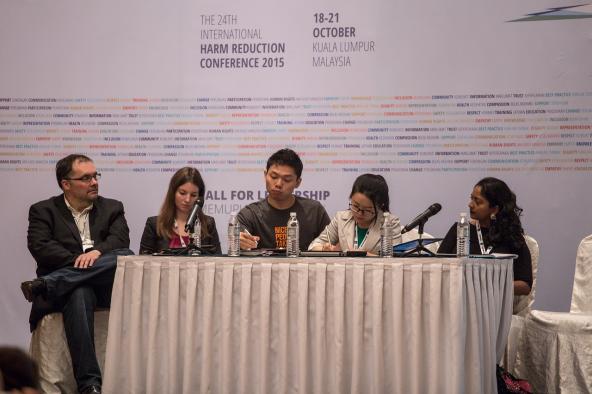
Article(s)
The death penalty for drugs must go, it has no place in a civilised society
By Aurélie Plaçais, on 21 October 2015
Those were the words of Anand Grover, former UN Special Rapporteur on the right to health during the opening ceremony of Harm Reduction International’s 24th conference in Kuala Lumpur, Malaysia.
2015
China
Drug Offenses
India
Indonesia
Malaysia

Article(s)
Imposing the death penalty has not reduced drug crimes in Asia -New Report
By FIDH & World Coalition, on 10 October 2015
Death penalty for drug crimes in Asia: an illegal practice reveals report published on World Day by FIDH and the World Coalition
2015
Afghanistan
Bangladesh
China
Democratic People's Republic of Korea
Drug Offenses
India
Indonesia
Iran (Islamic Republic of)
Japan
Lao People's Democratic Republic
Malaysia
Maldives
Myanmar
Pakistan
Republic of Korea
Singapore
Sri Lanka
Taiwan
Thailand
Viet Nam
Article(s)
China reduces the number of crimes punishable by death to 46, but keeps drug trafficking in the list
By Aurélie Plaçais, on 7 October 2015
China removes nine non-violent and rarely used criminal offenses from capital punishment.
2015
China
Drug Offenses
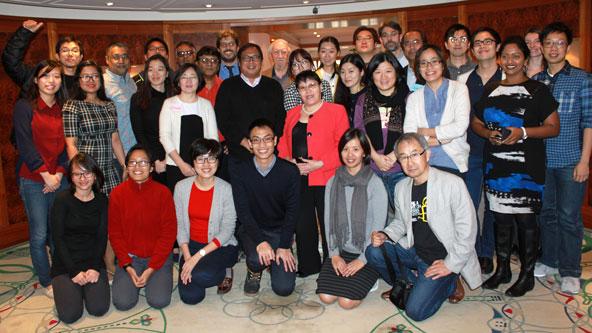
Article(s)
ADPAN network strengthens abolitionists across Asia
By Aurélie Plaçais (in Taipei, Taiwan), on 9 December 2014
The Anti-Death Penalty Asia Network, a coalition hosted by Amnesty International in London since 2006, has become an independent organisation registered in Malaysia and held its first AGM in Taipei, Taiwan on 4-5 December.
2014
China
Japan
Malaysia
Mongolia
Public Opinion
Republic of Korea
Taiwan
Taiwan
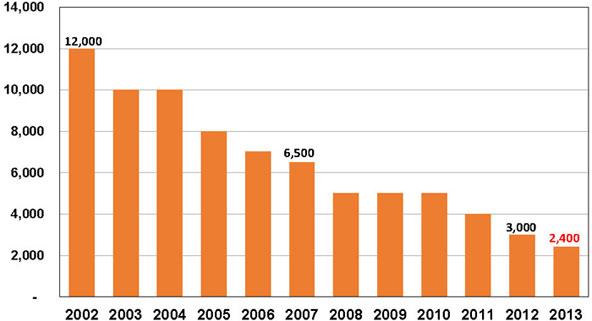
Article(s)
China’s “efforts to gradually reduce the application of the death penalty”
By Aurélie Plaçais, on 30 October 2014
Following a decision by the Communist Party’s Central Committee in November 2013 to “gradually reduce the number of crimes punishable by death”, a draft amendment to China’s criminal law was submitted for initial review to the country’s National People’s Congress this week.
2014
China
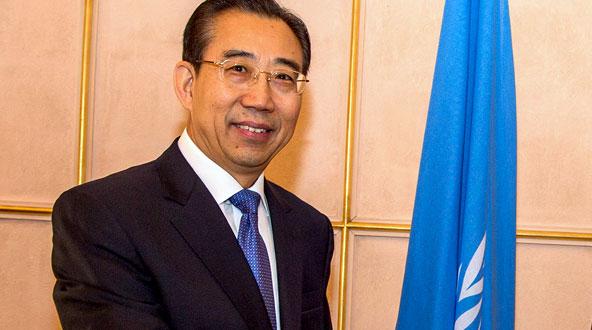
Article(s)
China rejects all UN recommendations on death penalty use
By Aurélie Plaçais, on 24 March 2014
“China’s position is to retain the death penalty, but strictly and prudently limit its application according to law,” said the world’s top executioner after it rejected all 20 UPR recommendations to curb capital punishment.
2014
China
Document(s)
China Executed 2,400 People in 2013, Dui Hua
By Dui Hua Human Rights Journal, on 1 January 2014
2014
Article
Warning: Undefined variable $liste_type_doc in /home/worldcoa/coalition2020/wp-content/themes/WCADP/template-parts/contents-document.php on line 21
Warning: Undefined variable $liste_pays in /home/worldcoa/coalition2020/wp-content/themes/WCADP/template-parts/contents-document.php on line 40
China
Warning: Undefined variable $tag_langue in /home/worldcoa/coalition2020/wp-content/themes/WCADP/template-parts/contents-document.php on line 85
More details See the document
The Dui Hua Foundation estimates that China executed approximately 2,400 people in 2013 and will execute roughly the same number of people in 2014. Annual declines in executions recorded in recent years are likely to be offset in 2014 by the use of capital punishment in anti-terrorism campaigns in Xinjiang and the anti-corruption campaign nationwide.
- Document type Article
- Countries list China
Warning: Undefined variable $liste_themes in /home/worldcoa/coalition2020/wp-content/themes/WCADP/template-parts/contents-document.php on line 114
Warning: Undefined variable $liste_themes in /home/worldcoa/coalition2020/wp-content/themes/WCADP/template-parts/contents-document.php on line 121
- Themes list Statistics,
Warning: Undefined variable $lien_langue in /home/worldcoa/coalition2020/wp-content/themes/WCADP/template-parts/contents-document.php on line 127
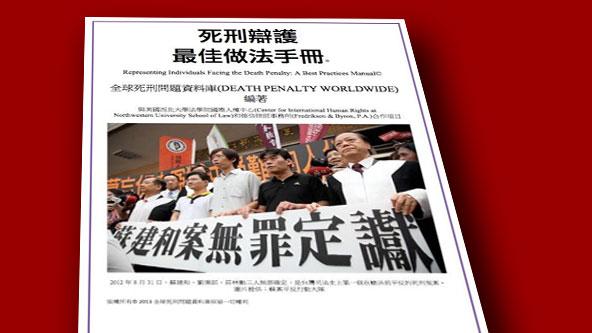
Article(s)
Lawyers’ manual published in traditional Chinese
By Taiwan Alliance to End the Death Penalty, on 30 November 2013
On the occasion of Cities for Life Day on November 30, the Taiwan Alliance to End the Death Penalty (TAEDP) and the World Coalition Against the Death Penalty are proud to announce the online publication of the Chinese version of Representing Individuals Facing the Death Penalty: A Best Practices Manual. This publication is intended for lawyers who defend people facing the death penalty around the world.
2013
China
Legal Representation
Taiwan
Taiwan
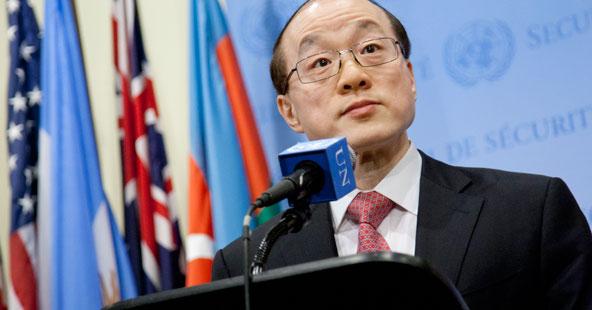
Article(s)
How far is China ready to reduce its use of the death penalty?
By Aurélie Plaçais, on 25 November 2013
The number one executioner in the world recently made national and international commitments to continuing to reform its death penalty, but how far is China really ready to go?
2013
China
Clemency
Drug Offenses
Terrorism
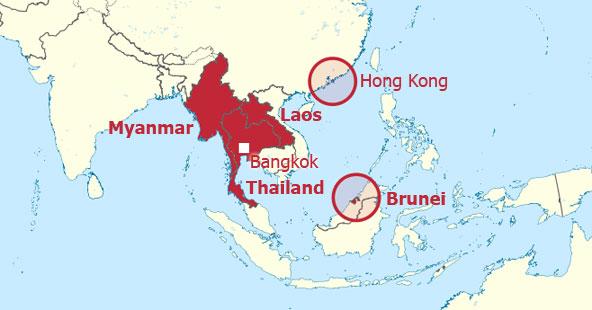
Article(s)
Moving away from the death penalty in Asia
By Sandra Babcock (DeathPenaltyWorldwide.org) in Bangkok, on 25 October 2013
Following up on the World Day Against the Death Penalty, successive meetings in Thailand and in China highlight decreasing support for capital punishment among Asian governments and public opinion.
2013
Brunei Darussalam
China
Japan
Lao People's Democratic Republic
Moratorium
Myanmar
Public Opinion
Thailand
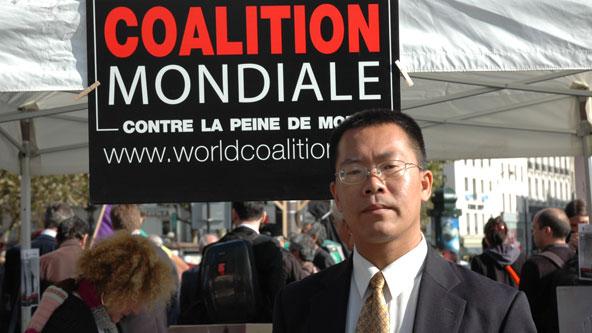
Article(s)
Chinese lawyers hailed as “heroes for justice”
By Aurélie Plaçais, on 22 June 2013
The role of lawyers in the fight against the death penalty has been discussed from different angles throughout the 5th World Congress, but the testimony of Chinese lawyers caught most people’s attention.
2013
China
Fair Trial
Legal Representation
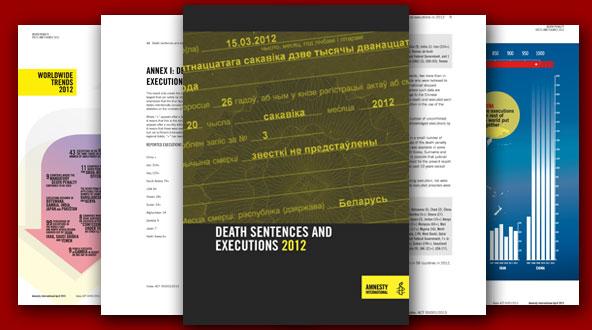
Article(s)
Only one in 10 countries carried out executions in 2012
By Tiziana Trotta, on 10 April 2013
At least 682 people were executed last year aside from China, according to Amnesty International.
2013
Afghanistan
Bahrain
Barbados
Belarus
Burkina Faso
China
Death Row Conditions
Democratic People's Republic of Korea
Egypt
Gambia
Ghana
Guyana
India
Iran (Islamic Republic of)
Iraq
Malawi
Moratorium
Pakistan
Saudi Arabia
Sierra Leone
Singapore
Syrian Arab Republic
Taiwan
Trinidad and Tobago
Viet Nam
Yemen
Document(s)
China’s Death Penalty: The Supreme People’s Court, the Suspended Death Sentence and the Politics of Penal Reform
By Susan Trevaskes / British Journal of Criminology, on 1 January 2013
2013
Article
Warning: Undefined variable $liste_type_doc in /home/worldcoa/coalition2020/wp-content/themes/WCADP/template-parts/contents-document.php on line 21
Warning: Undefined variable $liste_pays in /home/worldcoa/coalition2020/wp-content/themes/WCADP/template-parts/contents-document.php on line 40
China
Warning: Undefined variable $tag_langue in /home/worldcoa/coalition2020/wp-content/themes/WCADP/template-parts/contents-document.php on line 85
More details See the document
This paper examines the issue of judicial discretion and the role of the Supreme People’s Court (SPC) in death penalty reform since 2007. The SPC has been encouraging judges to give ‘suspended’ death sentences rather than ‘immediate execution’ for some homicide cases. Lower court judges are encouraged to use their discretion to recognize mitigating circumstances that would allow them to sentence offenders to a suspended death sentence. The SPC has used ‘guidance’ instruments which include ‘directives’ and other SPC interpretations and a new ‘case guidance’ system which provides case exemplars to follow. The study explored these guidance instruments as a way of deepening the understanding of how law, politics and judicial practices are interwoven to achieve reform goals.
- Document type Article
- Countries list China
Warning: Undefined variable $liste_themes in /home/worldcoa/coalition2020/wp-content/themes/WCADP/template-parts/contents-document.php on line 114
Warning: Undefined variable $liste_themes in /home/worldcoa/coalition2020/wp-content/themes/WCADP/template-parts/contents-document.php on line 121
- Themes list Death Penalty, Country/Regional profiles,
Warning: Undefined variable $lien_langue in /home/worldcoa/coalition2020/wp-content/themes/WCADP/template-parts/contents-document.php on line 127
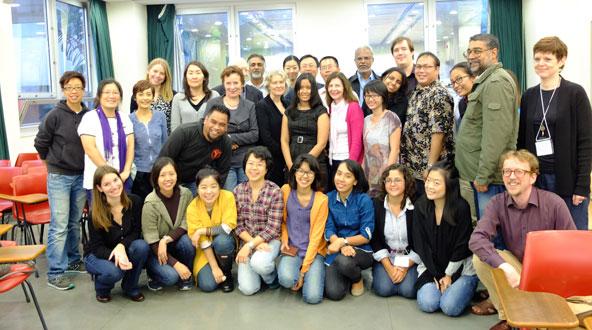
Article(s)
Building a death penalty-free future in Asia
By Aurélie Plaçais, on 6 December 2012
Ways to strengthen transregional action led by Asian activists and ideas to combat obstruction from national authorities were among the issues discussed at the third ADPAN consultative meeting.
2012
Australia
Bangladesh
China
India
Indonesia
Japan
Malaysia
Mongolia
Moratorium
Pakistan
Philippines
Republic of Korea
Singapore
Taiwan
Thailand
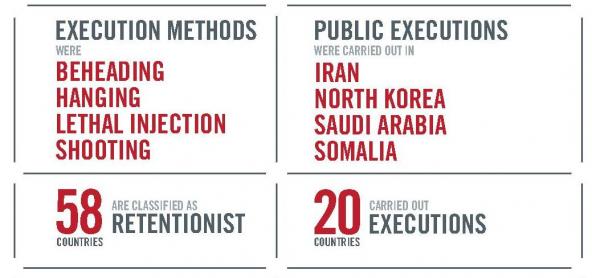
Article(s)
Alarming levels of executions in few countries – Amnesty
on 27 March 2012
In a new report, Amnesty International analyses some of the key developments in the worldwide application of the death penalty, citing figures it has gathered on the number of death sentences handed down and executions carried out in 2011.
2012
Bahrain
Belarus
China
Iran (Islamic Republic of)
Iraq
Moratorium
Nigeria
Saudi Arabia
Sierra Leone
South Sudan
Tunisia

Article(s)
Asia still top executioner but more divided than ever: Hands Off Cain Report
By Aurélie Plaçais, on 11 August 2011
Hands Off Cain’s 2011 Report contains the most important facts regarding the practice of the death penalty in 2010 and the first six months of 2011.
2011
China
Democratic People's Republic of Korea
Drug Offenses
India
Iran (Islamic Republic of)
Mongolia
Moratorium
Myanmar
Viet Nam

Article(s)
Amnesty 2010 stats: retentionist countries increasingly isolated
on 28 March 2011
Countries which continue to use the death penalty are being left increasingly isolated following a decade of progress towards abolition, Amnesty International has said in its new report Death Sentences and Executions in 2010.
2011
China
Drug Offenses
Egypt
Fair Trial
Indonesia
Iran (Islamic Republic of)
Juveniles
Lao People's Democratic Republic
Libya
Malaysia
Moratorium
Pakistan
Sudan
Thailand
United Arab Emirates
United States
Yemen
Article(s)
Four Japanese executed in China
on 9 April 2010
A Japanese abolitionist organisation has criticised both the Chinese and the Japanese authorities after the series of executions.
2010
China
Drug Offenses
Article(s)
2009 Amnesty statistics: at least 714 executions… excluding China
on 30 March 2010
Amnesty International has released its report on the death penalty in the world in 2009. The organisation has decided to exclude China from its calculation due to the lack of transparency on capital punishment in that country.
2010
Belarus
Burundi
China
Cruel, Inhuman and Degrading Treatment and Punishment
Fair Trial
Iran (Islamic Republic of)
Iraq
Saudi Arabia
Togo
United States
Article(s)
Clever use of online tools could boost activism
on 28 February 2010
Kathy Brown, an English IT specialist, is not the typical anti-death penalty campaigner. She is not an NGO-registered lawyer nor a political science student. But through the internet, she has become active in the global abolitionist community.
2010
China
Drug Offenses
Mental Illness
Article(s)
Universal abolition will happen when four key countries change sides
on 28 February 2010
The US, Iran, China and Japan hold a strategic cultural or geographic position, but the road to abolition remains blocked in those countries.
China
Death Row Conditions
Iran (Islamic Republic of)
Japan
Juveniles
Switzerland
United States
Article(s)
Abolitionist co-operation at all levels kick-started in Geneva
on 24 February 2010
The first plenary session of the World Congress Against the Death Penalty focused on “increasing cooperation between States, NGOs and international organizations and developing common strategies for a death penalty-free world”.
2010
China
Iran (Islamic Republic of)
Moratorium
Switzerland
Article(s)
Bad press for China after Briton’s execution
on 10 January 2010
Bitter criticism has been targeting China since the execution of British national Akmal Shaikh in the Chinese province of Xinjiang on December 29 after he was found guilty of transporting drugs.
2010
China
Mental Illness
United Kingdom
Article(s)
Chinese death penalty targets minorities
on 19 November 2009
The recent execution of several Uyghurs and Tibetans after ethnic clashes in China was met with severe international criticism.
2009
China
Fair Trial
Legal Representation
Article(s)
China acknowledges death row organ trafficking
on 29 August 2009
The World Coalition and its members have been criticizing illegal organ transplants after executions. Beijing promises to tackle the problem.
2009
China
Cruel, Inhuman and Degrading Treatment and Punishment
Article(s)
Fair and open investigation in Uyghur region
on 21 July 2009
Following the death penalty threats issued against protestors in Xinjiang, the World Coalition calls on China to respect its international committments and to guarantee fair trials.
2009
China
Fair Trial
Article(s)
End the death penalty for drug-related offences
on 26 June 2009
June 26 is a world day of action against drugs. Several international NGOs have joined their voices to condemn the use of capital punishment against drug users and traffickers.
2009
China
Drug Offenses
Indonesia
Viet Nam
Article(s)
World Coalition worried by the current situation in Iraq and Tibet (China)
on 19 May 2009
Alerted by local members, the World Coalition Against the Death Penalty recently sent protest letters to the Chinese and Iraqi authorities.
2009
China
Fair Trial
Iraq
Article(s)
Corpses of doubtful origin banned from Paris exhibition
on 24 April 2009
Two French organisations have won a court case against an exhibition presenting human bodies likely to be those of executed Chinese citizens.
2009
China
Fair Trial
France
France
Article(s)
Amnesty charts death penalty world map and vows to remove Belarus from it
on 25 March 2009
World Coalition member Amnesty International has released its annual statistics on the death penalty and launched a campaign against capital punishment in Belarus.
2009
Belarus
Belarus
China
Iran (Islamic Republic of)
Pakistan
Saudi Arabia
United States
Article(s)
E Book review: a guidebook to the death penalty in Asia
on 10 March 2009
A new, authoritative study sheds a new light on capital punishment across Asia and may help abolitionists enhance their strategies.
2009
China
Japan
Philippines
Republic of Korea
Taiwan
Viet Nam
Document(s)
Death Penalty Lessons from Asia
By David T. Johnson / Franklin E. Zimring / Asia-Pacific Journal, on 1 January 2009
2009
Article
Warning: Undefined variable $liste_type_doc in /home/worldcoa/coalition2020/wp-content/themes/WCADP/template-parts/contents-document.php on line 21
Warning: Undefined variable $liste_pays in /home/worldcoa/coalition2020/wp-content/themes/WCADP/template-parts/contents-document.php on line 40
China
Warning: Undefined variable $tag_langue in /home/worldcoa/coalition2020/wp-content/themes/WCADP/template-parts/contents-document.php on line 85
More details See the document
Part one of this article summarizes death penalty policy and practice in the region that accounts for 60 percent of the world’s population and more than 90 percent of the world’s executions. The lessons from Asia are then organized into three parts. Part two describes features of death penalty policy in Asia that are consistent with the experiences recorded in Europe and with the theories developed to explain Western changes. Part three identifies some of the most significant diversities within the Asian region – in rates of execution, trends over time, and patterns of change – that contrast with the recent history of capital punishment in non-Asian locations and therefore challenge conventional interpretations of death penalty policy and change. Part four discusses three ways that the politics of capital punishment in Asia are distinctive: the limited role of international standards and transnational influences in most Asian jurisdictions; the presence of single-party domination in several Asian political systems; and the persistence of communist versions of capital punishment in the Asia region.
- Document type Article
- Countries list China
Warning: Undefined variable $liste_themes in /home/worldcoa/coalition2020/wp-content/themes/WCADP/template-parts/contents-document.php on line 114
Warning: Undefined variable $liste_themes in /home/worldcoa/coalition2020/wp-content/themes/WCADP/template-parts/contents-document.php on line 121
- Themes list Death Penalty,
Warning: Undefined variable $lien_langue in /home/worldcoa/coalition2020/wp-content/themes/WCADP/template-parts/contents-document.php on line 127
Document(s)
The Next Frontier: National Development, Political Change, and the Death Penalty in Asia
By David T. Johnson / Franklin E. Zimring / Oxford University Press, on 1 January 2009
Book
Warning: Undefined variable $liste_type_doc in /home/worldcoa/coalition2020/wp-content/themes/WCADP/template-parts/contents-document.php on line 21
Warning: Undefined variable $liste_pays in /home/worldcoa/coalition2020/wp-content/themes/WCADP/template-parts/contents-document.php on line 40
China
Warning: Undefined variable $tag_langue in /home/worldcoa/coalition2020/wp-content/themes/WCADP/template-parts/contents-document.php on line 85
More details See the document
Authors David Johnson, an expert on law and society in Asia, and Franklin Zimring, a senior authority on capital punishment, utilize their research to identify the critical factors affecting the future of the death penalty in Asia. They found that when an authoritarian state experienced democratic reform, such as in Taiwan and South Korea, the rate of executions dropped sharply. Johnson and Zimring also found that politics, instead of culture or tradition, is the major obstacle to the end of capital punishment in Asia.
- Document type Book
- Countries list China
Warning: Undefined variable $liste_themes in /home/worldcoa/coalition2020/wp-content/themes/WCADP/template-parts/contents-document.php on line 114
Warning: Undefined variable $lien_langue in /home/worldcoa/coalition2020/wp-content/themes/WCADP/template-parts/contents-document.php on line 127
Document(s)
Executions, Deterrence and Homicide: A Tale of Two Cities
By David T. Johnson / Jeffrey Fagan / Franklin Zimring / Columbia School of Law, on 1 January 2009
Article
Warning: Undefined variable $liste_type_doc in /home/worldcoa/coalition2020/wp-content/themes/WCADP/template-parts/contents-document.php on line 21
Warning: Undefined variable $liste_pays in /home/worldcoa/coalition2020/wp-content/themes/WCADP/template-parts/contents-document.php on line 40
China
Warning: Undefined variable $tag_langue in /home/worldcoa/coalition2020/wp-content/themes/WCADP/template-parts/contents-document.php on line 85
More details See the document
We compare homicide rates in two quite similar cities with vastly different execution risks. Singapore had an execution rate close to 1 per million per year until an explosive twentyfold increase in 1994-95 and 1996-97 to a level that we show was probably the highest in the world. Hong Kong,has no executions all during the last generation and abolished capital punishment in 1993. Homicide levels and trends are remarkably similar in these two cities over the 35 years after 1973. By comparing two closely matched places with huge contrasts in actual execution but no differences in homicide trends, we have generated a unique test of the exuberant claims of deterrence that have been produced over the past decade in the U.S.
- Document type Article
- Countries list China
Warning: Undefined variable $liste_themes in /home/worldcoa/coalition2020/wp-content/themes/WCADP/template-parts/contents-document.php on line 114
Warning: Undefined variable $liste_themes in /home/worldcoa/coalition2020/wp-content/themes/WCADP/template-parts/contents-document.php on line 121
- Themes list Deterrence ,
Warning: Undefined variable $lien_langue in /home/worldcoa/coalition2020/wp-content/themes/WCADP/template-parts/contents-document.php on line 127
Document(s)
Criminological analysis on deterrent power of death penalty
By Yuanhuang Zhang / Frontiers of law in China, on 1 January 2009
Article
Warning: Undefined variable $liste_type_doc in /home/worldcoa/coalition2020/wp-content/themes/WCADP/template-parts/contents-document.php on line 21
Warning: Undefined variable $liste_pays in /home/worldcoa/coalition2020/wp-content/themes/WCADP/template-parts/contents-document.php on line 40
China
Warning: Undefined variable $tag_langue in /home/worldcoa/coalition2020/wp-content/themes/WCADP/template-parts/contents-document.php on line 79
Warning: Undefined variable $lien_langue in /home/worldcoa/coalition2020/wp-content/themes/WCADP/template-parts/contents-document.php on line 80
zh-hant
More details See the document
Death penalty is the most effective deterrence to grave crimes, which has been the key basis for the State to retain death penalty. In fact, either in legislation or in execution, death penalty can not produce the special deterrent effect as expected. With respect to this issue, people tend to conduct normative exploration from the perspective of ordinary legal principles or the principle of human rights, which is more speculative than convincing. Correct interpretation based on the existing positive analysis and differentiation based on human nature which sifts the true from the false will not only help end the simple, repetitive and meaningless arguments regarding the basis for the existence of death penalty, but also help understand the rational nature of both the elimination and the preservation of death penalty, so as to define the basic direction towards which the State should make efforts in controlling death penalty in the context of promoting social civilization.
- Document type Article
- Countries list China
Warning: Undefined variable $liste_themes in /home/worldcoa/coalition2020/wp-content/themes/WCADP/template-parts/contents-document.php on line 114
Warning: Undefined variable $liste_themes in /home/worldcoa/coalition2020/wp-content/themes/WCADP/template-parts/contents-document.php on line 121
- Themes list Deterrence ,
- Available languages 犯罪学分析死刑威慑力量(注:英文名翻译)
Article(s)
Filming in the darkness of China’s death row
on 17 September 2008
Night Train, a Chinese film featuring a couple faced with the absurdity of the death penalty, is coming out in DVD.
2008
China
Death Row Conditions
Article(s)
DVD carries the voice of abolitionists in Asian languages
on 4 August 2008
A DVD released by ADPAN features a campaigning video made from interviews with international anti-death penalty activists in 13 Asian languages.
2008
China
India
Indonesia
Japan
Lao People's Democratic Republic
Mongolia
Pakistan
Philippines
Republic of Korea
Thailand
Viet Nam
Article(s)
Japanese lawyer indignant after her client is executed without notice
on 23 June 2008
On June 17, Tsutomu Miyazaki, Shinji Mutsuda and Yoshio Yamazaki were executed in Japan. Lawyer Maiko Tagusari, who defended one of the three men, denounces the rising number of executions in her country.
2008
China
Japan
Legal Representation
Taiwan
Article(s)
China refuses to consider 250,000-strong petition
on 16 June 2008
A World Coalition delegation found the door closed on June 16 when they attempted to handover to the Chinese Liaison Office in Hong Kong a petition urging for changes in the death penalty system in China.
2008
China
Fair Trial
Innocence
Moratorium
Article(s)
Video: China’s death penalty Olympic medal
on 8 April 2008
French organisation Together Against the Death Penalty seized the opportunity of the Olympic Torch relay in Paris to highlight China’s world record when it comes to executions.
2008
China
France
Article(s)
Top Chinese abolitionist receives threats
on 14 March 2008
The World Coalition Against the Death Penalty (WCADP) is concerned about the security of human rights lawyer, academic and anti-death penalty activist Teng Biao.
2008
China
Fair Trial
Article(s)
Open letter to the China National People’s Congress
on 26 February 2008
The World Coalition and ADPAN are publicising an open letter to the China National People’s Congress demanding concrete steps towards the abolition of the death penalty in China.
2008
China
Fair Trial
Moratorium
Article(s)
Teng Biao: Olympics an opportunity to put pressure on the Chinese authorities”
on 13 February 2008
Teng Biao is one of the rare activists who call for the immediate abolition of the death penalty from within China. In the past weeks, the police confiscated his passport and he received threats.
2008
China
Innocence
Public Opinion
Article(s)
ADPAN: tearing down Asia’s death penalty veil of secrecy in 2008
on 3 February 2008
The majority of executions take place in Asia. But this is also the continent where campaigners have developed a fantastic regional abolitionist network, one that reaches across borders, languages and religions.
2008
China
Drug Offenses
Fair Trial
Japan
Mental Illness
Mongolia
Murder Victims' Families
Public Opinion
Republic of Korea
Article(s)
Nie Shubin: a victim of the arbitrary in China
on 21 January 2008
In the lead up to the Beijing Olympics, the French coalition Collectif Chine JO 2008 highlights cases of human rights abuse in China on a weekly basis. This week, they focus on Nie Shubin, who was executed by mistake in 1995.
2008
China
Cruel, Inhuman and Degrading Treatment and Punishment
Women
Document(s)
The death penalty in China today: Kill fewer, kill cautiously
By Susan Trevaskes / Asian Survey, on 1 January 2008
2008
Article
Warning: Undefined variable $liste_type_doc in /home/worldcoa/coalition2020/wp-content/themes/WCADP/template-parts/contents-document.php on line 21
Warning: Undefined variable $liste_pays in /home/worldcoa/coalition2020/wp-content/themes/WCADP/template-parts/contents-document.php on line 40
China
Warning: Undefined variable $tag_langue in /home/worldcoa/coalition2020/wp-content/themes/WCADP/template-parts/contents-document.php on line 85
More details See the document
While the PRC death penalty debate has been an ongoing and highly contentious issue in the international human rights arena, death sentence policy and practice in China has remained relatively static since the early 1980s. Events in late 2006 and early 2007 have now dramatically changed the landscape of capital punishment in China. This paper analyses the recent debate on the death penalty in terms of the shifting power relationships in China today. The Supreme People’s Court wants to strictly limit the death penalty to only the ‘most heinous’ criminals while the politburo on the other hand, wants to maintain the two-decade old ‘strike hard’ policy which encourages severe punishment to be meted out to a wider range of serious criminals.
- Document type Article
- Countries list China
Warning: Undefined variable $liste_themes in /home/worldcoa/coalition2020/wp-content/themes/WCADP/template-parts/contents-document.php on line 114
Warning: Undefined variable $liste_themes in /home/worldcoa/coalition2020/wp-content/themes/WCADP/template-parts/contents-document.php on line 121
- Themes list Public debate,
Warning: Undefined variable $lien_langue in /home/worldcoa/coalition2020/wp-content/themes/WCADP/template-parts/contents-document.php on line 127
Document(s)
The death penalty and society in contemporary China
By Wang Yunhai / Punishment ans Society 10(2), 137-151, on 1 January 2008
Article
Warning: Undefined variable $liste_type_doc in /home/worldcoa/coalition2020/wp-content/themes/WCADP/template-parts/contents-document.php on line 21
Warning: Undefined variable $liste_pays in /home/worldcoa/coalition2020/wp-content/themes/WCADP/template-parts/contents-document.php on line 40
China
Warning: Undefined variable $tag_langue in /home/worldcoa/coalition2020/wp-content/themes/WCADP/template-parts/contents-document.php on line 85
More details See the document
Why are death penalty provisions, convictions and executions so prevalent in China? This article aims to answer this question by way of defining China as a ‘state power’ based society characterized by a socialist social system. The prevalence of the death penalty in China can be explained in terms of the following factors: first, the death penalty is a political issue of state power; second, the death penalty is a crucial part of criminal policy in a ‘state power’-based society; third, the issue of whether to retain the death penalty is a political rather than a legal matter. The Chinese government has improved its death penalty system in recent years; however, the situation has not fundamentally changed. The future of death penalty policy and practice in China will depend primarily on legal rather than democratic developments. The death penalty serves as a focal point that can help illuminate issues of punishment and society in East Asia. Accordingly, this article will elaborate my theories regarding the death penalty in contemporary China, with the primary intent of elucidating the relationship between punishment and society in China.
- Document type Article
- Countries list China
Warning: Undefined variable $liste_themes in /home/worldcoa/coalition2020/wp-content/themes/WCADP/template-parts/contents-document.php on line 114
Warning: Undefined variable $liste_themes in /home/worldcoa/coalition2020/wp-content/themes/WCADP/template-parts/contents-document.php on line 121
- Themes list Networks,
Warning: Undefined variable $lien_langue in /home/worldcoa/coalition2020/wp-content/themes/WCADP/template-parts/contents-document.php on line 127
Document(s)
The political origins of death penalty exceptionalism: Mao Zedong and the practice of capital punishment in contemporary China
By Zhang Ning / Punishment and Society, on 1 January 2008
Article
Warning: Undefined variable $liste_type_doc in /home/worldcoa/coalition2020/wp-content/themes/WCADP/template-parts/contents-document.php on line 21
Warning: Undefined variable $liste_pays in /home/worldcoa/coalition2020/wp-content/themes/WCADP/template-parts/contents-document.php on line 40
China
Warning: Undefined variable $tag_langue in /home/worldcoa/coalition2020/wp-content/themes/WCADP/template-parts/contents-document.php on line 85
More details See the document
This article focuses on the role played by Mao Zedong in the making of the Chinese communist legal system in general and in the Chinese practice of the death penalty under Mao in particular. It attempts to study this link through an analysis of an event which represented a landmark, namely the campaign of the regression against counterrevolutionaries launched in 1950—2, and through an examination of three specific cases, which enable us to observe the concrete characteristics of these practices, whose effects continue to be felt in today’s China.
- Document type Article
- Countries list China
Warning: Undefined variable $liste_themes in /home/worldcoa/coalition2020/wp-content/themes/WCADP/template-parts/contents-document.php on line 114
Warning: Undefined variable $liste_themes in /home/worldcoa/coalition2020/wp-content/themes/WCADP/template-parts/contents-document.php on line 121
- Themes list Networks,
Warning: Undefined variable $lien_langue in /home/worldcoa/coalition2020/wp-content/themes/WCADP/template-parts/contents-document.php on line 127
Document(s)
Public Opinion on the Death Penalty in China: Results from a General Population Survey Conducted in Three Provinces in 2007/08
By Shenghui Qi / Dietrich Oberwittler / Max Planck Institute for Foreign and International Criminal Law, on 1 January 2008
Article
Warning: Undefined variable $liste_type_doc in /home/worldcoa/coalition2020/wp-content/themes/WCADP/template-parts/contents-document.php on line 21
Warning: Undefined variable $liste_pays in /home/worldcoa/coalition2020/wp-content/themes/WCADP/template-parts/contents-document.php on line 40
China
Warning: Undefined variable $tag_langue in /home/worldcoa/coalition2020/wp-content/themes/WCADP/template-parts/contents-document.php on line 85
More details See the document
The present project is concerned with the significant role that public opinion plays in the debate surrounding the death penalty and criminal policy in the People’s Republic of China, including possible public reaction to any planned abolishment of the death penalty. How is public opinion on the death penalty exhibited in China? What influence does public opinion on the death penalty have on legislative and judicial practice in China? The principal goal of the project is to analyze the links that exist between public opinion, criminal policy, legislation and legal practice, and to initiate attitudinal changes amongst political and legal actors as well as the public at large. A further objective is to guide Chinese criminal law reform, particularly with regard to a possible reduction in the number of capital offences, against the background of the ratification of the International Covenant on Civil and Political Rights
- Document type Article
- Countries list China
Warning: Undefined variable $liste_themes in /home/worldcoa/coalition2020/wp-content/themes/WCADP/template-parts/contents-document.php on line 114
Warning: Undefined variable $liste_themes in /home/worldcoa/coalition2020/wp-content/themes/WCADP/template-parts/contents-document.php on line 121
- Themes list Public opinion,
Warning: Undefined variable $lien_langue in /home/worldcoa/coalition2020/wp-content/themes/WCADP/template-parts/contents-document.php on line 127
Document(s)
Against the death penalty: international initiatives and implications
By Richard C. Dieter / Sangmin Bae / Seema Kandelia / William A. Schabas / Lilian Chenwi / Peter Hodgkinson / Roger Hood / Lina Gyllensten / Nicola Machean / Jane Marriott / Julian Killingley / Quincy Whitaker / Jon Yorke (ed) / Ashgate Publishing Limited / Rachael Stokes, on 1 January 2008
Book
Warning: Undefined variable $liste_type_doc in /home/worldcoa/coalition2020/wp-content/themes/WCADP/template-parts/contents-document.php on line 21
Warning: Undefined variable $liste_pays in /home/worldcoa/coalition2020/wp-content/themes/WCADP/template-parts/contents-document.php on line 40
China
Warning: Undefined variable $tag_langue in /home/worldcoa/coalition2020/wp-content/themes/WCADP/template-parts/contents-document.php on line 85
More details See the document
This edited volume brings together leading scholars on the death penalty within international, regional and municipal law. It considers the intrinsic elements of both the promotion and demise of the punishment around the world, and provides analysis which contributes to the evolving abolitionist discourse.The contributors consider the current developments within the United Nations, the Council of Europe, the African Commission and the Commonwealth Caribbean, and engage with the emergence of regional norms promoting collective restriction and renunciation of the punishment. They investigate perspectives and questions for retentionist countries, focusing on the United States, China, Korea and Taiwan, and reveal the iniquities of contemporary capital judicial systems. Emphasis is placed on the issues of transparency of municipal jurisdictions, the jurisprudence on the ‘death row phenomenon’ and the changing nature of public opinion. The volume surveys and critiques the arguments used to scrutinize the death penalty to then offer a detailed analysis of possible replacement sanctions.
- Document type Book
- Countries list China
Warning: Undefined variable $liste_themes in /home/worldcoa/coalition2020/wp-content/themes/WCADP/template-parts/contents-document.php on line 114
Warning: Undefined variable $liste_themes in /home/worldcoa/coalition2020/wp-content/themes/WCADP/template-parts/contents-document.php on line 121
- Themes list International law,
Warning: Undefined variable $lien_langue in /home/worldcoa/coalition2020/wp-content/themes/WCADP/template-parts/contents-document.php on line 127
Article(s)
The history of Chinese law is an argument for abolition
on 27 September 2007
In the run-up to the Beijing Olympic Games in 2008, action is increasing to call China to account for its copious use of the death penalty. Far from being a western whim, abolition of capital punishment in China would be a return to an imperial decision made in the 18th century.
2007
Afghanistan
China
Article(s)
8 Demands for Beijing
on 21 June 2007
By welcoming the Olympics in 2008, China committed itself to improving its human rights situation. Anxious to remind Chinese authorities of their commitments, nine French associations, five of which are members of the World Coalition, created the China 2008 Olympic Games Collective.
2007
China
Document(s)
Capital Punishment Views in China and the United States: A Preliminary Study Among College Students
By Eric G. Lambert / International Journal of Offender Therapy and Comparative Criminology / Shanhe Jiang, on 1 January 2007
2007
Article
Warning: Undefined variable $liste_type_doc in /home/worldcoa/coalition2020/wp-content/themes/WCADP/template-parts/contents-document.php on line 21
Warning: Undefined variable $liste_pays in /home/worldcoa/coalition2020/wp-content/themes/WCADP/template-parts/contents-document.php on line 40
China
Warning: Undefined variable $tag_langue in /home/worldcoa/coalition2020/wp-content/themes/WCADP/template-parts/contents-document.php on line 85
More details See the document
There is a lack of research on attitudes toward capital punishment in China, and there is even less research on cross-national comparisons of capital punishment views. Using data recently collected from college students in the United States and China, this study finds that U.S. and Chinese students have differences in their views on the death penalty and its functions of deterrence, rehabilitation, and incapacitation. This study also reveals that the respondents’ perspectives of deterrence, rehabilitation, retribution, and incapacitation all affect their attitudes toward the death penalty in the United States, whereas only the first three views affect attitudes toward capital punishment in China. Furthermore, retribution is the strongest predictor in the United States, whereas deterrence is the strongest predictor in China.
- Document type Article
- Countries list China
Warning: Undefined variable $liste_themes in /home/worldcoa/coalition2020/wp-content/themes/WCADP/template-parts/contents-document.php on line 114
Warning: Undefined variable $liste_themes in /home/worldcoa/coalition2020/wp-content/themes/WCADP/template-parts/contents-document.php on line 121
- Themes list Public opinion, Public debate,
Warning: Undefined variable $lien_langue in /home/worldcoa/coalition2020/wp-content/themes/WCADP/template-parts/contents-document.php on line 127
Document(s)
Chinas Death Penalty: History, Law and Contemporary Practices
By Terance D. Miethe / Hong Lu / Routledge, on 1 January 2007
Book
Warning: Undefined variable $liste_type_doc in /home/worldcoa/coalition2020/wp-content/themes/WCADP/template-parts/contents-document.php on line 21
Warning: Undefined variable $liste_pays in /home/worldcoa/coalition2020/wp-content/themes/WCADP/template-parts/contents-document.php on line 40
China
Warning: Undefined variable $tag_langue in /home/worldcoa/coalition2020/wp-content/themes/WCADP/template-parts/contents-document.php on line 85
More details See the document
This book examines the death penalty within the changing socio-political context of China. The authors’ treatment of China’s death penalty is legal, historical, and comparative. In particular, they examine; the substantive and procedures laws surrounding capital punishment in different historical periods the purposes and functions of capital punishment in China in various dynasties changes in the method of imposition and relative prevalence of capital punishment over time the socio-demographic profile of the executed and their crimes over the last two decades and comparative practices in other countries. Their analyses of the death penalty in contemporary China focus on both its theory – how it should be done in law – and actual practice – based on available secondary reports/sources.
- Document type Book
- Countries list China
Warning: Undefined variable $liste_themes in /home/worldcoa/coalition2020/wp-content/themes/WCADP/template-parts/contents-document.php on line 114
Warning: Undefined variable $liste_themes in /home/worldcoa/coalition2020/wp-content/themes/WCADP/template-parts/contents-document.php on line 121
- Themes list Networks,
Warning: Undefined variable $lien_langue in /home/worldcoa/coalition2020/wp-content/themes/WCADP/template-parts/contents-document.php on line 127
Document(s)
Sources of Variation in Pro-Death Penalty Attitudes in China: An Exploratory Study of Chinese Students at Home and Abroad
By Lening Zhang / Terance D. Miethe / Hong Lu / Bin Liang / British Journal of Criminology, on 1 January 2006
2006
Article
Warning: Undefined variable $liste_type_doc in /home/worldcoa/coalition2020/wp-content/themes/WCADP/template-parts/contents-document.php on line 21
Warning: Undefined variable $liste_pays in /home/worldcoa/coalition2020/wp-content/themes/WCADP/template-parts/contents-document.php on line 40
China
Warning: Undefined variable $tag_langue in /home/worldcoa/coalition2020/wp-content/themes/WCADP/template-parts/contents-document.php on line 85
More details See the document
This paper examines Chinese students’ attitudes about the death penalty in contemporary China. Drawing upon Western public opinion research on the death penalty, samples of Chinese college students at home and abroad are used to explore the magnitude of their pro-death penalty attitudes and sources of variation in these opinions. Both groups of Chinese students are found to support the death penalty across different measures of this concept. Several individual and contextual factors are correlated with pro-death penalty attitudes, but the belief in the specific deterrent effect of punishments was the only variable that had a significant net effect on these attitudes in our multivariate analysis. The paper concludes with a discussion of the implications of this study for future research on public opinion about crime and punishment in China.
- Document type Article
- Countries list China
Warning: Undefined variable $liste_themes in /home/worldcoa/coalition2020/wp-content/themes/WCADP/template-parts/contents-document.php on line 114
Warning: Undefined variable $liste_themes in /home/worldcoa/coalition2020/wp-content/themes/WCADP/template-parts/contents-document.php on line 121
- Themes list Public opinion, Public debate,
Warning: Undefined variable $lien_langue in /home/worldcoa/coalition2020/wp-content/themes/WCADP/template-parts/contents-document.php on line 127
Document(s)
STRENGTHENING THE DEFENCE IN DEATH PENALTY CASES IN THE PEOPLE´S REPUBLIC OF CHINA: Empirical Research into the Role of Defence Councils in Criminal Cases Eligible for the Death Penalty
By Hans Jörg Albrecht / Max Planck Institute for Foreign and International Criminal Law, on 1 January 2006
Article
Warning: Undefined variable $liste_type_doc in /home/worldcoa/coalition2020/wp-content/themes/WCADP/template-parts/contents-document.php on line 21
Warning: Undefined variable $liste_pays in /home/worldcoa/coalition2020/wp-content/themes/WCADP/template-parts/contents-document.php on line 40
China
Warning: Undefined variable $tag_langue in /home/worldcoa/coalition2020/wp-content/themes/WCADP/template-parts/contents-document.php on line 85
More details See the document
This project examines the role of defence councils in Chinese criminal proceedings that can end up with the imposition of the death penalty. It aims to review the problems defence lawyers face in such proceedings, the defence strategies they apply and to examine whether the assignment of a defence lawyer makes a difference in the outcome of a criminal trial. Moreover, the project explores what can and should be done to empower defence councils to effectively represent suspects and accused in death penalty eligible cases.The objective of the study is to shed light on the problems experienced by criminal defence councils when defending capital crime cases and to generate information on how death penalty cases are processed through the Chinese system of justice as well as the determinants of the outcomes death penalty eligible criminal cases.
- Document type Article
- Countries list China
Warning: Undefined variable $liste_themes in /home/worldcoa/coalition2020/wp-content/themes/WCADP/template-parts/contents-document.php on line 114
Warning: Undefined variable $liste_themes in /home/worldcoa/coalition2020/wp-content/themes/WCADP/template-parts/contents-document.php on line 121
- Themes list Legal Representation,
Warning: Undefined variable $lien_langue in /home/worldcoa/coalition2020/wp-content/themes/WCADP/template-parts/contents-document.php on line 127
Document(s)
The cultural lives of capital punishment: comparative perspectives
By Sangmin Bae / David T. Johnson / Virgil K.Y. Ho / Evi Girling / Agata Fijalkowski / Julia Eckert / Christian Boulanger / Austin Sarat / Stanford University Press / Botagoz Kassymbekova / Shai Lavi / Jürgen Martschukat, on 1 January 2005
2005
Book
Warning: Undefined variable $liste_type_doc in /home/worldcoa/coalition2020/wp-content/themes/WCADP/template-parts/contents-document.php on line 21
Warning: Undefined variable $liste_pays in /home/worldcoa/coalition2020/wp-content/themes/WCADP/template-parts/contents-document.php on line 40
China
Warning: Undefined variable $tag_langue in /home/worldcoa/coalition2020/wp-content/themes/WCADP/template-parts/contents-document.php on line 85
More details See the document
They undertake this “cultural voyage” comparatively—examining the dynamics of the death penalty in Mexico, the United States, Poland, Kyrgyzstan, India, Israel, Palestine, Japan, China, Singapore, and South Korea—arguing that we need to look beyond the United States to see how capital punishment “lives” or “dies” in the rest of the world, how images of state killing are produced and consumed elsewhere, and how they are reflected, back and forth, in the emerging international judicial and political discourse on the penalty of death and its abolition.
- Document type Book
- Countries list China
Warning: Undefined variable $liste_themes in /home/worldcoa/coalition2020/wp-content/themes/WCADP/template-parts/contents-document.php on line 114
Warning: Undefined variable $liste_themes in /home/worldcoa/coalition2020/wp-content/themes/WCADP/template-parts/contents-document.php on line 121
- Themes list Networks,
Warning: Undefined variable $lien_langue in /home/worldcoa/coalition2020/wp-content/themes/WCADP/template-parts/contents-document.php on line 127
Document(s)
The Debate Over the Death Penalty in Today’s China
By Zhang Ning / China perpectives, on 1 January 2005
Article
Warning: Undefined variable $liste_type_doc in /home/worldcoa/coalition2020/wp-content/themes/WCADP/template-parts/contents-document.php on line 21
Warning: Undefined variable $liste_pays in /home/worldcoa/coalition2020/wp-content/themes/WCADP/template-parts/contents-document.php on line 40
China
Warning: Undefined variable $tag_langue in /home/worldcoa/coalition2020/wp-content/themes/WCADP/template-parts/contents-document.php on line 85
More details See the document
Despite the sensitivity of the subject, the death penalty is currently a topic of public discussion among Chinese legal experts who are now openly wondering about its possible abolition. This debate is of interest on three counts. First, it goes hand-in-hand with a retrospective reading of the Chinese penal tradition, highlighting the succession of attempts at modernising criminal law for over a century. It also shows the ever present weight of the Maoist legacy and the contradictions of the present policy, caught between a concern for legality and continuing recourse to exceptional measures. Lastly, legal professionals and theorists alike are engaging in a review—based on specific cases—of the particular features of contemporary Chinese society and culture.
- Document type Article
- Countries list China
Warning: Undefined variable $liste_themes in /home/worldcoa/coalition2020/wp-content/themes/WCADP/template-parts/contents-document.php on line 114
Warning: Undefined variable $liste_themes in /home/worldcoa/coalition2020/wp-content/themes/WCADP/template-parts/contents-document.php on line 121
- Themes list Public debate,
Warning: Undefined variable $lien_langue in /home/worldcoa/coalition2020/wp-content/themes/WCADP/template-parts/contents-document.php on line 127
Document(s)
Chinese Executions: Visualising their Differences with European Supplices
By Bourgon J / European Journal of East Asian Studies, on 1 January 2003
2003
Article
Warning: Undefined variable $liste_type_doc in /home/worldcoa/coalition2020/wp-content/themes/WCADP/template-parts/contents-document.php on line 21
Warning: Undefined variable $liste_pays in /home/worldcoa/coalition2020/wp-content/themes/WCADP/template-parts/contents-document.php on line 40
China
Warning: Undefined variable $tag_langue in /home/worldcoa/coalition2020/wp-content/themes/WCADP/template-parts/contents-document.php on line 85
More details See the document
European executions obeyed a complex model that the author proposes to call ‘the supplice pattern’. The term supplice designates tortures and tormented executions, but it also includes their cultural background. The European way of executing used religious deeds, aesthetic devices and performing arts techniques which themselves called for artistic representations through paintings, theatre, etc. Moreover, Christian civilisation was unique in the belief that the spectacle of a painful execution had a redemptive effect on the criminals and the attendants as well. Chinese executions obeyed an entirely different conception. They were designed to show that punishment fitted the crime as provided in the penal code. All details were aimed to highlight and inculcate the meaning of the law, while signs of emotions, deeds, words, that could have interfered with the lesson in law were prohibited. In China, capital executions were not organized as a show nor subject to aesthetic representations, and they had no redemptive function. This matter-of-fact way of executing people caused Westerners deep uneasiness. The absence of religious background and staging devices was interpreted as a sign of barbarity and cruelty. What was stigmatised was not so much the facts that their failure to conform to the ‘supplice pattern’ that constituted for any Westerner the due process of capital executions.
- Document type Article
- Countries list China
Warning: Undefined variable $liste_themes in /home/worldcoa/coalition2020/wp-content/themes/WCADP/template-parts/contents-document.php on line 114
Warning: Undefined variable $liste_themes in /home/worldcoa/coalition2020/wp-content/themes/WCADP/template-parts/contents-document.php on line 121
- Themes list Networks,
Warning: Undefined variable $lien_langue in /home/worldcoa/coalition2020/wp-content/themes/WCADP/template-parts/contents-document.php on line 127
China
RetentionistDeath penalty legal status
CountriesEgypt
RetentionistDeath penalty legal status
CountriesIndonesia
RetentionistDeath penalty legal status
CountriesIran (Islamic Republic of)
RetentionistDeath penalty legal status
CountriesLao People’s Democratic Republic
Abolitionist in practiceDeath penalty legal status
CountriesLibya
RetentionistDeath penalty legal status
CountriesMalaysia
RetentionistDeath penalty legal status
CountriesPakistan
RetentionistDeath penalty legal status
CountriesSudan
RetentionistDeath penalty legal status
CountriesThailand
RetentionistDeath penalty legal status
CountriesUnited Arab Emirates
RetentionistDeath penalty legal status
CountriesUnited States
RetentionistDeath penalty legal status
CountriesYemen
RetentionistDeath penalty legal status
Countries
